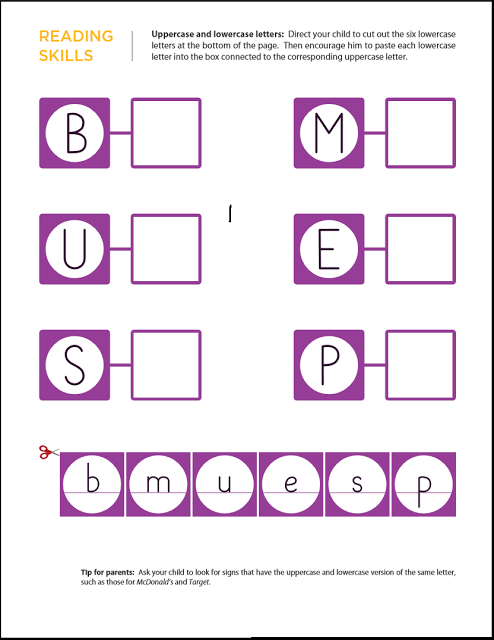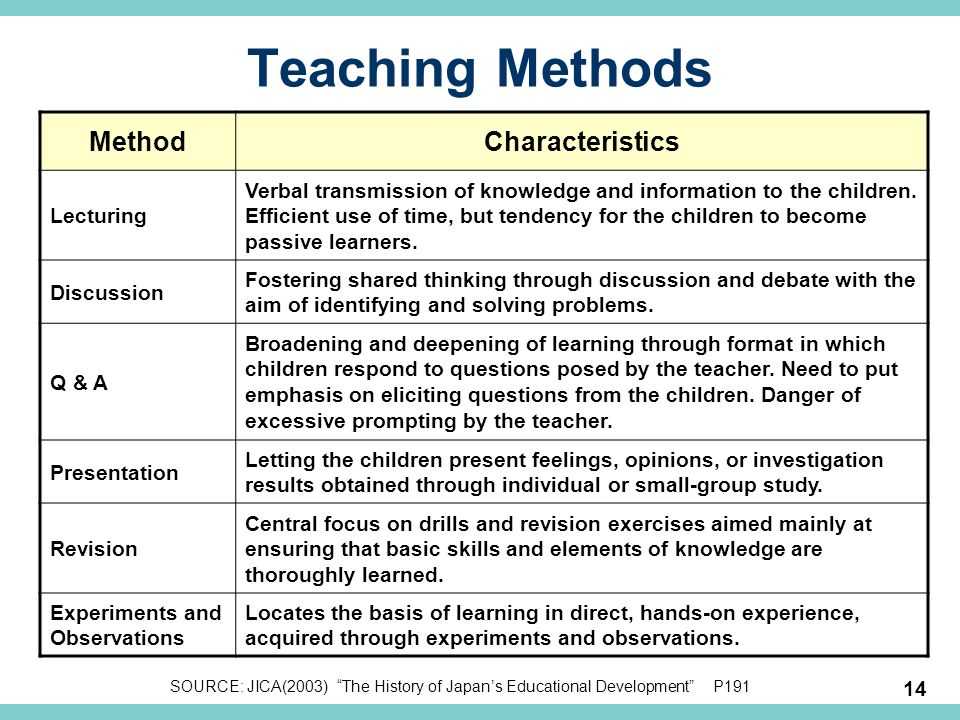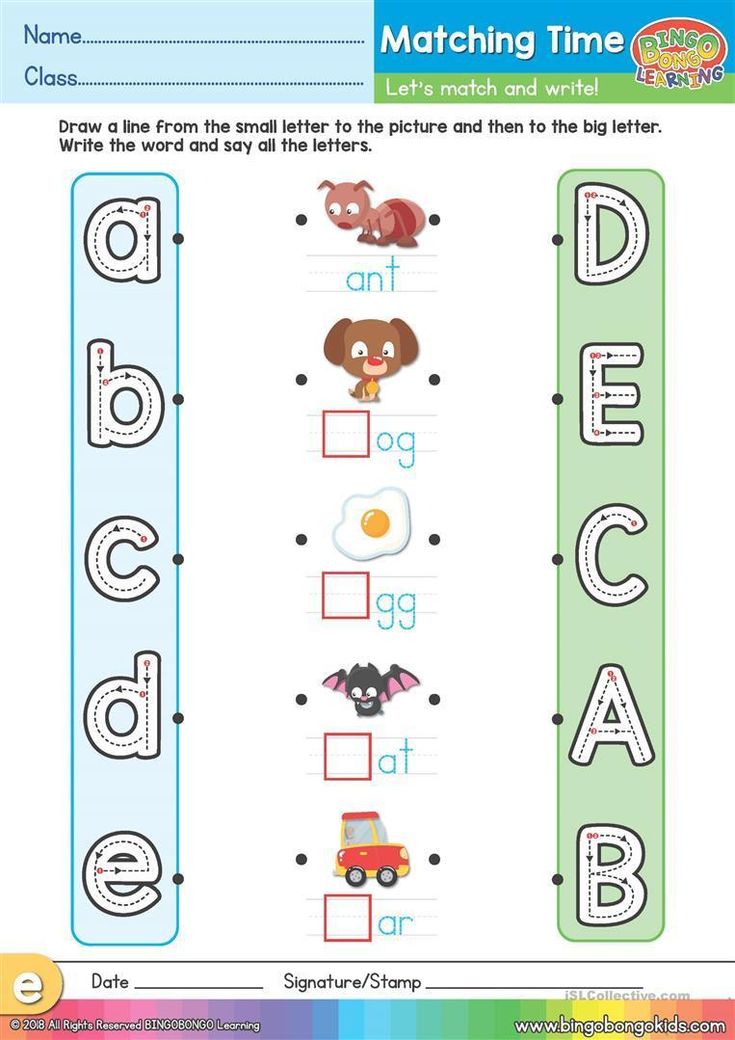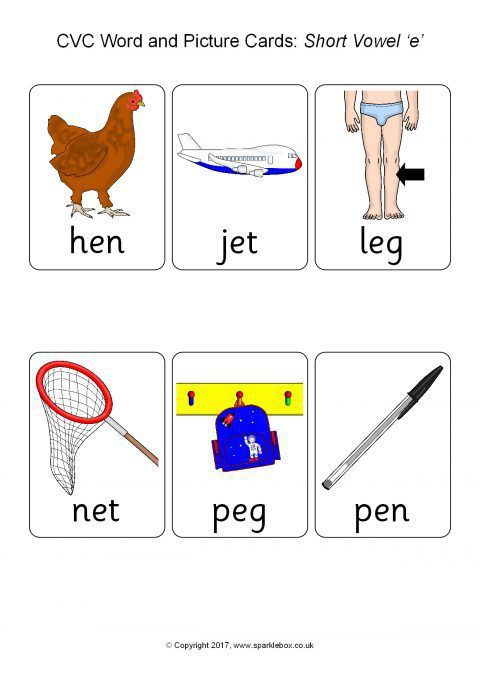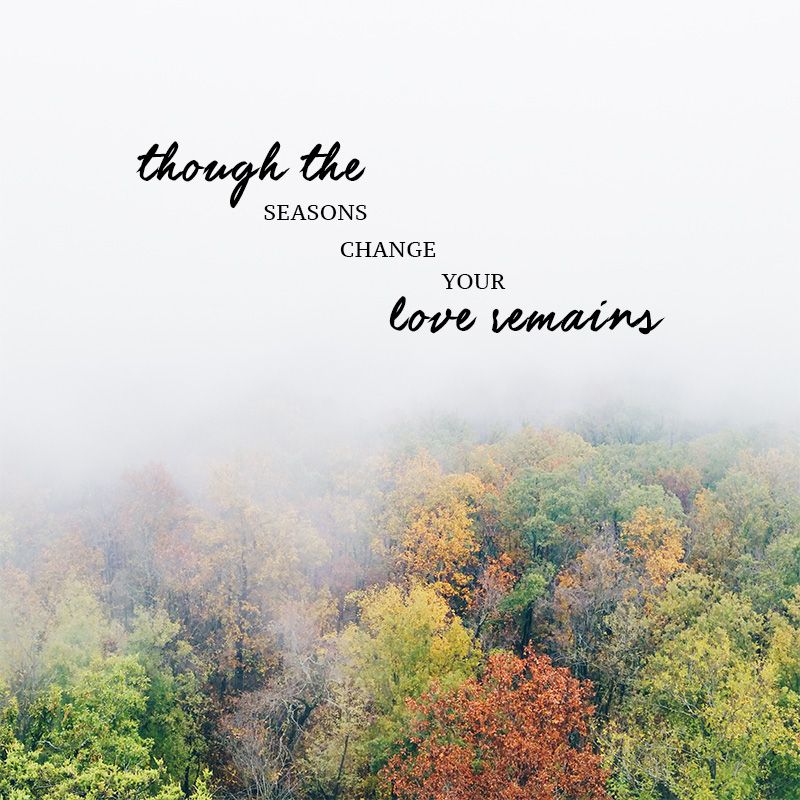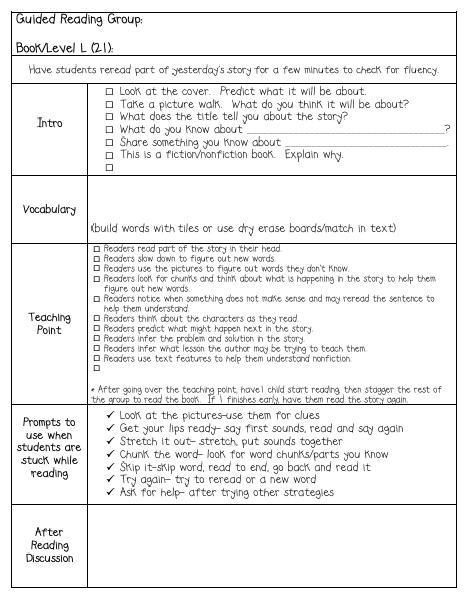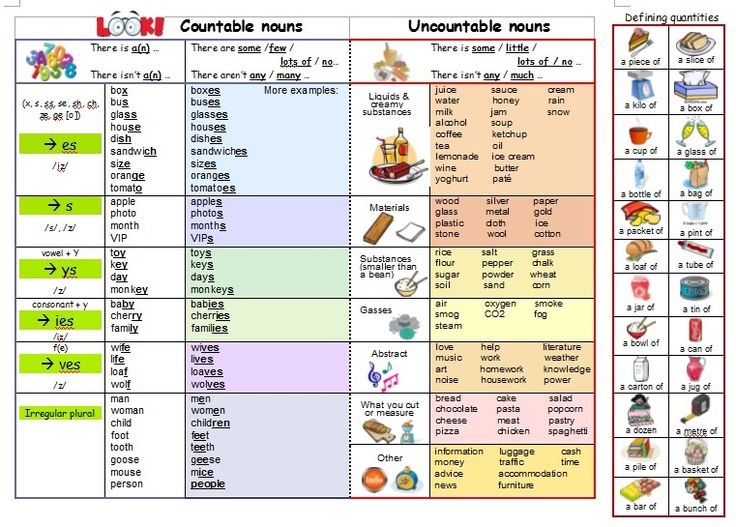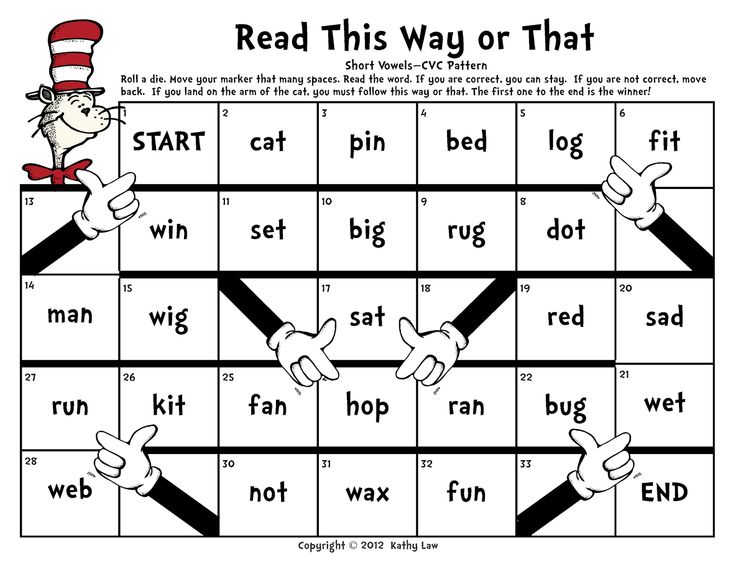Sight words memory game
Sight Words Memory | Sight Words: Teach Your Child to Read
- Overview
- Materials
- Activity
- Confidence Builder
- Extension
- Assessment
- Printable Memory Cards
- Additional Resources
- Questions and Answers
Sight Words Memory is the standard Memory card game — sometimes called the Concentration game — with the additional element of having the student read the word on each card as they turn it over. This provides a lot of opportunities for repetition in sight reading.
Sight Words Memory
Learning the Sight Words Memory game is easier if the child has previously played the standard Memory game, but the game is simple enough that this is not necessary.
Memory works very well as a solo game. Memory can also be played in a group of up to four players.
↑ Top
Memory can be played with just a set of the Memory Cards.
- Memory Cards
- Printer
- Cardstock printer paper (approx. 110 lb / 200 gsm)
- Scissors
Create Memory Cards with our Memory Card Creator and print the cards out on cardstock paper. Then cut out the cards along the dotted lines. The set should contain two copies of each word you want to review.
Begin with a small set of cards (10 word pairs), and as your child’s competence with the activity increases, increase the number of cards you use in a game. An advanced student can handle up to 25 word pairs.
↑ Top
The game is played in much the same way as the standard Memory Card Game, with the addition of the players reading the word on each card as they play the game. The goal is to collect as many pairs of matching word cards as possible.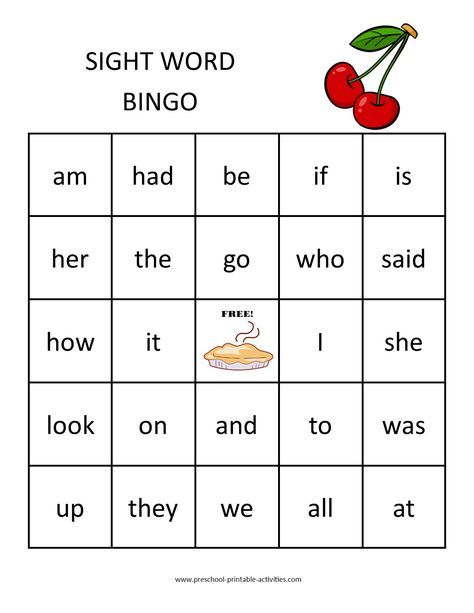
Video: How to Play Sight Words Memory
To set up the game, shuffle the cards and arrange them, face down, in a grid. For example, a deck of 30 cards (15 word pairs) is best laid out in a 5×6 grid, 5 columns of 6 cards each. The child picks one card and turns it over so the word is visible, reading the word on the card. The child then picks a second card and also turns it over, reading the word on the second card.
If the words on the two overturned cards match, the player removes the pair, placing them by her side, and gets another turn. If the words do not match, the player turns the cards back over so the words are no longer showing, and the player to her right takes the next turn.
If a child is unable to read a word or reads a word incorrectly, give the child a bit of coaching to help them correct the mistake and learn the word.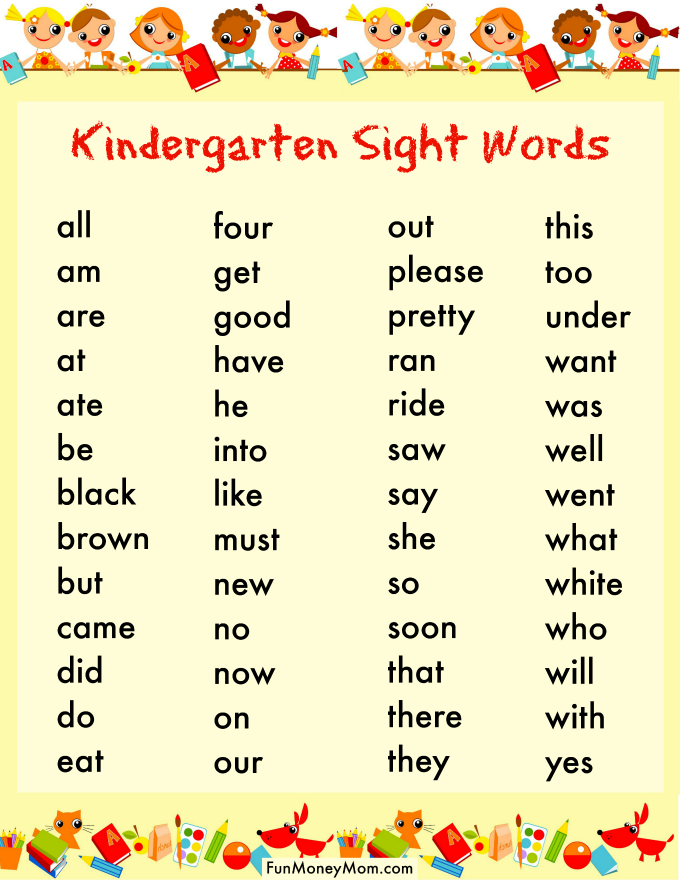
Play continues until all the words are matched and there are no cards left unclaimed.
If a child is struggling with this game, you can read through all the word cards with them prior to the start of play to help refresh their recall of the words. You can also make the game easier by using a smaller deck of cards with fewer word pairs. For an advanced child, you can increase the number of words you use, so it becomes more difficult to find matching cards.
↑ Top
To make the game a little easier, especially for a younger child, simply use fewer pairs of cards.
↑ Top
When the child finds a matching pair of word cards, have her use the word in a sentence before she can add the cards to her “keep” pile.
↑ Top
When assessing a child’s mastery of the words, be sure to separate their reading skills from their skill at playing the Memory game.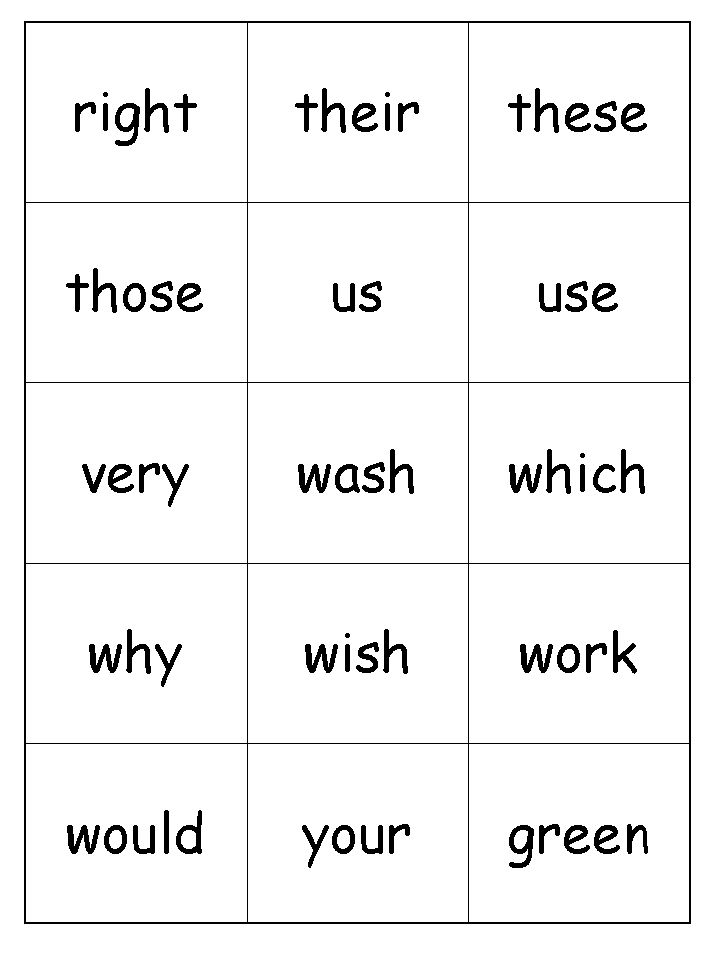 A child might have mastered the sight words on the cards and also have some difficulty remembering which card is where in the grid. Such a child might be fine with more advanced words but need a smaller number of cards. Another child who struggles to read the words will probably also have trouble remembering the location of the word cards.
A child might have mastered the sight words on the cards and also have some difficulty remembering which card is where in the grid. Such a child might be fine with more advanced words but need a smaller number of cards. Another child who struggles to read the words will probably also have trouble remembering the location of the word cards.
↑ Top
You can create your own custom Memory Game Cards, with developmentally appropriate word sets. As the child’s sight words vocabulary expands, you should start to expand your card set with new words and gradually remove the words that have been mastered and no longer need intensive repetition.
7.1 Custom Sight Words Memory Cards
The Memory Card Creator creates custom Memory Card sets. The generator lets you use combine existing words lists such as Dolch Sight Words and Fry Sight Words, and add your own custom words.
7.2 Blank Memory Cards
- Blank Memory Cards (Write in your own words)
7.
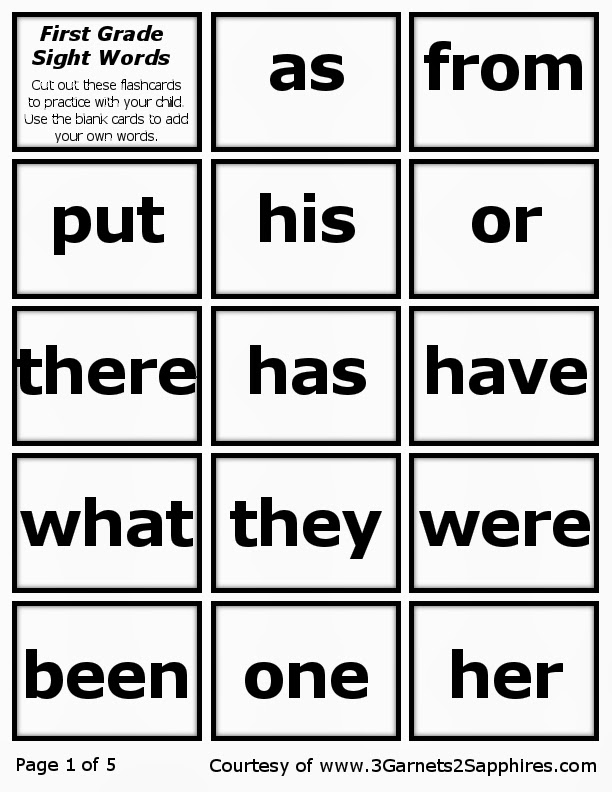 3 Dolch Sight Words Memory Cards
3 Dolch Sight Words Memory Cards- Pre-K Dolch Words (40 words)
- Kindergarten Dolch Words (52 words)
- 1st Grade Dolch Words (41 words)
- 2nd Grade Dolch Words (46 words)
- 3rd Grade Dolch Words (41 words)
- Noun Dolch Words (95 words)
7.4 Fry Sight Words Memory Cards
- 1st 100 Fry Words (100 words)
- 2nd 100 Fry Words (100 words)
- 3rd 100 Fry Words (100 words)
- 4th 100 Fry Words (100 words)
- 5th 100 Fry Words (100 words)
- 6th 100 Fry Words (100 words)
- 7th 100 Fry Words (100 words)
- 8th 100 Fry Words (100 words)
- 9th 100 Fry Words (100 words)
- 10th 100 Fry Words (100 words)
7.5 Top 150 Written Words Memory Cards
- 1st 50 Words (50 words)
- 2nd 50 Words (50 words)
- 3rd 50 Words (50 words)
To download a template, right-click and select Save As.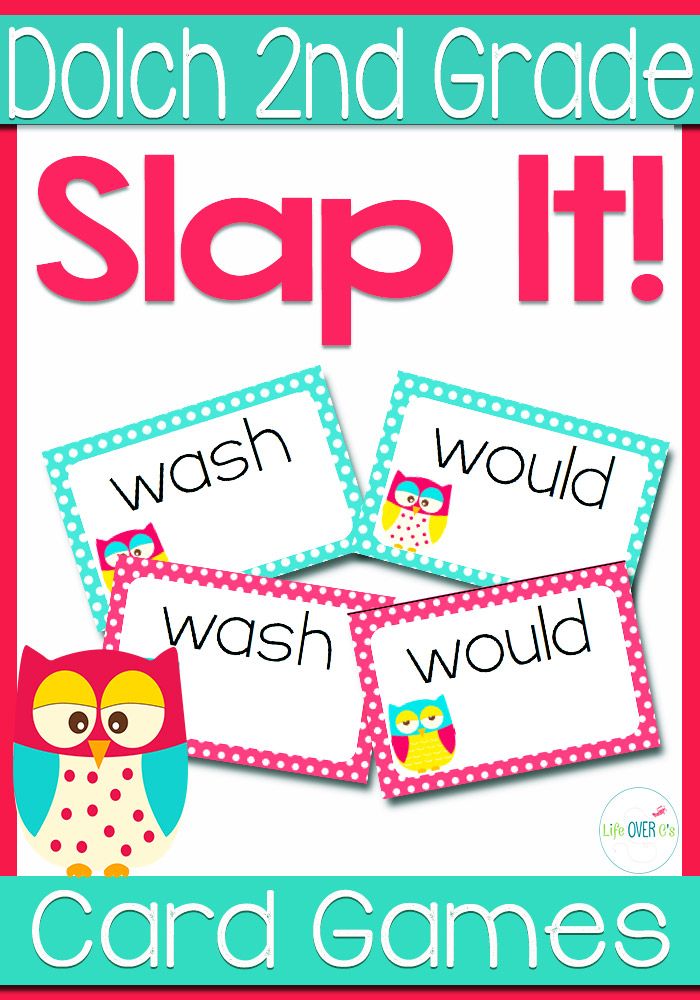
These Memory Game Cards are governed by the the Creative Commons Attribution 3.0 Unported License. This license lets you use the cards in any manner you want, as long as you leave the attribution logo on the cards. We made these cards so you could use them, and we are only too happy if you use them in your school, library, daycare facility, or for-profit tutoring business. You do not need to contact us for permission to use the materials.
↑ Top
- Primary Games
- Learning Games for Kids
- DolchWord.net
↑ Top
Leave a Reply
Free Sight Words Memory Game to Boost Reading Fun
This free sight words memory game makes learning how to read fun. Your kids will love this hands-on, interactive approach to practicing sight words.
I’m using these printable cards with my boys in a variety of ways.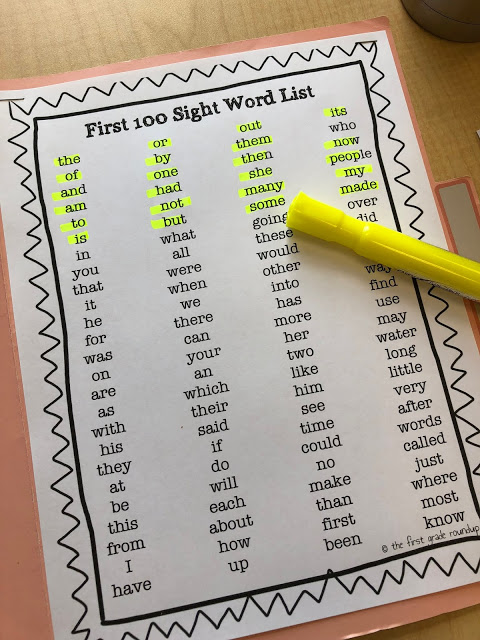 Find out more about the creative activities that we are doing to have sight words fun and how you can get started with your free printable pack today!
Find out more about the creative activities that we are doing to have sight words fun and how you can get started with your free printable pack today!
Our Relaxed Approach to Learning How to Read
As a homeschool parent, I’ve had my share of guilt.
At times, I feel like I’m totally rocking this whole homeschool thing. And then it’s like I’ve hit a brick wall and had a ton of concrete poured on me.
Fortunately, I found the key to digging myself out of that big mess. And that key is to just relax and enjoy the ride.
Teaching my four older boys how to read was no exception. We went through some big ups and some big downs. And lot of those erratic experiences were due to me!
I’ve learned a few tips and tricks that I’m now using with my youngest boy. And the #1 thing that I’ve discovered is that you must keep it fun and follow your child’s lead 🙂
Xman is ready to learn & practice sight words 🙂
My two oldest boys expressed interest in learning how to read during preschool.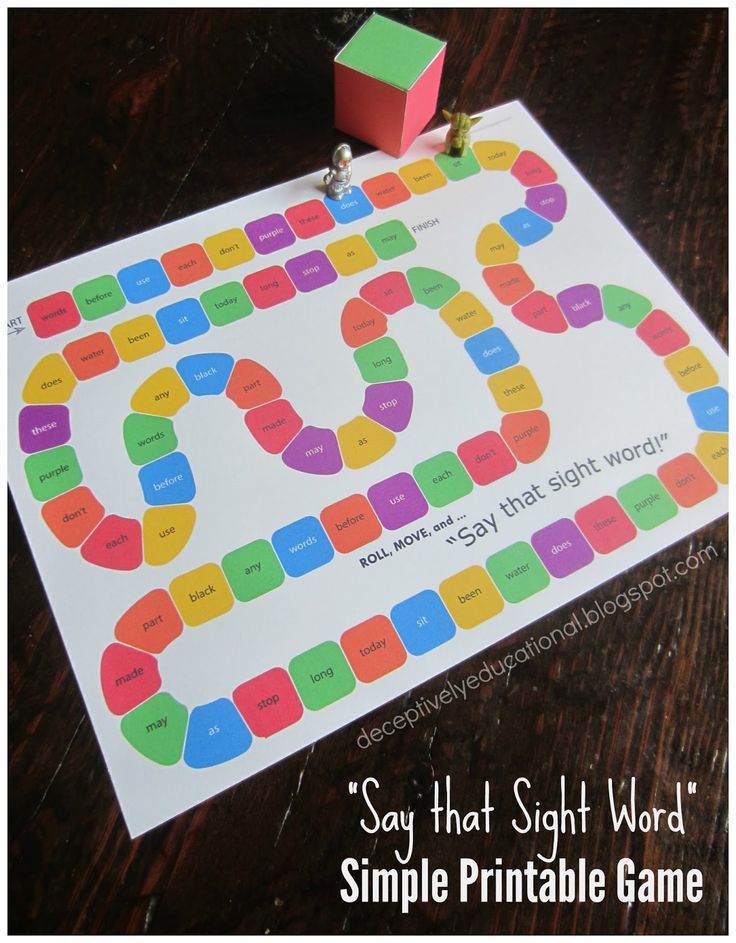 They loved worksheets and workbooks for practicing phonics and sight words. These boys wanted structure and thrived using Teach Your Child to Read in 100 Easy Lessons.
They loved worksheets and workbooks for practicing phonics and sight words. These boys wanted structure and thrived using Teach Your Child to Read in 100 Easy Lessons.
Boys #3 and #4 were different stories. Smiley (#3) adored our read-aloud time and quickly learned his letter sounds. But, any attempt at teaching him how to read was a flop.
After lots of frustration and tears, I followed the wise words of Julie Bogart and her Brave Writer lifestyle. I stepped back from all the pressure and structured approaches. It was so hard because I worried that I’d fail my child. But, it was the best thing I could have done for that boy and our relationship 🙂
We kept up our read-alouds and listening to audiobooks. Smiley watched big brothers read and soaked it all in. We used hands-on games like Bananagrams and Pop for Letters to continue practicing letter sounds.
BananagramsLearning Resources Pop for Letters Game
And when he was ready, Smiley took a book out of one of our many overflowing book baskets and started reading.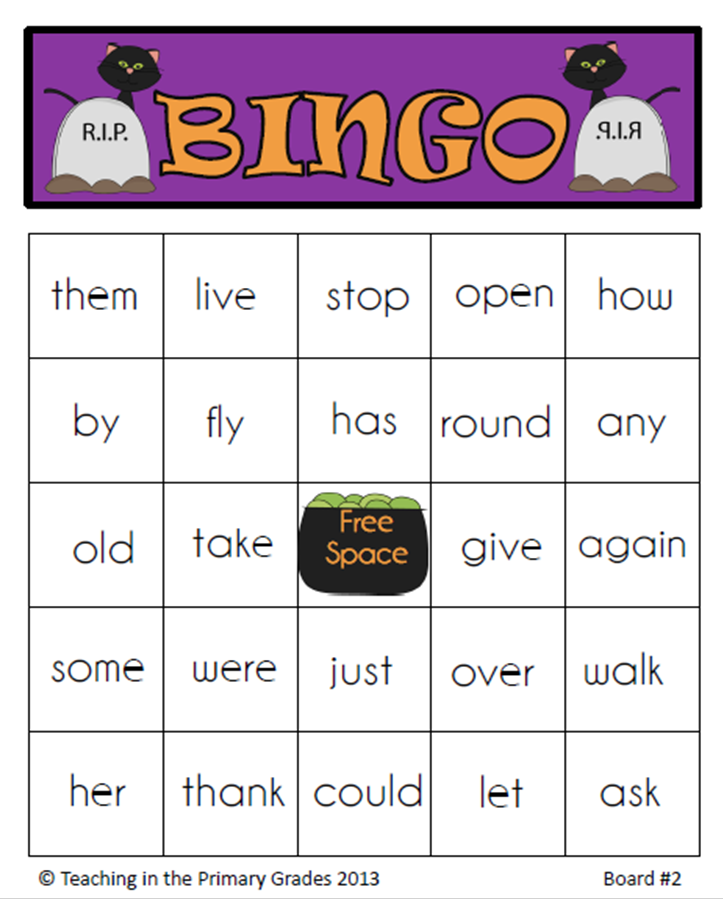 I kid you not! You could have picked up jaw up from the floor.
I kid you not! You could have picked up jaw up from the floor.
His first book was Hop on Pop by Dr. Seuss. We had read that book A LOT so I tested to see if he was really reading it (or had simply memorized). He read a page from the middle of the book backward!
There was no stopping him with his reading adventures after that 😉
Bear (#4) enjoyed learning how to read with Bob Books. Since that approach worked with him, I got every Bob Books set that I could. He breezed through that series and began his reading adventures fun.
My First BOB Books: Pre-Reading SkillsBob Books, Set 1: Beginning ReadersBob Books Set 2-Advancing BeginnersComplete Set of Bob Books, Sets 1-5 (42 books)Bob Books Sight Words: KindergartenBob Books: Sight Words, 1st GradeBob Books: First StoriesBob Books: Rhyming WordsBob Books Set 4 – Complex WordsBob Books Set 5- Long Vowels
This past summer, my youngest (Xman) begged me to learn how to read. He’s an interesting mix of all his older brothers.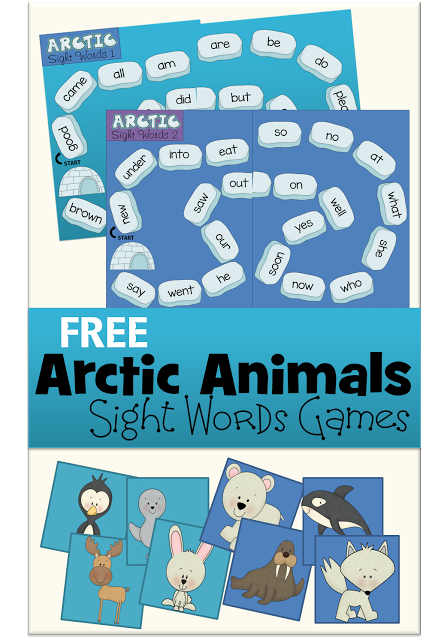 We’re using a combination of Teach Your Child to Read in 100 Easy Lessons and Bob Books. And it’s working for him 🙂
We’re using a combination of Teach Your Child to Read in 100 Easy Lessons and Bob Books. And it’s working for him 🙂
In addition to those resources, Xman and I are having a blast with hands-on activities, like our new free sight words memory game.
Learning Sight Words Can Be Fun!
Sight words can be real buggers for some kids.
My oldest seemed to quickly memorize sight words. We used a set of sight words flashcards on a loose-leaf ring that my mom (a retired Kindergarten teacher) gifted us. After a few rounds of practice, Captain mastered sight words.
His brothers needed more time and practice 😉 After a bit of panic, I found out that it’s completely normal for kids to learn how to read in their own time.
To make learning sight words fun, I added games and hands-on activities to our reading practice. With these types of activities, my boys were able to relax and have learning fun.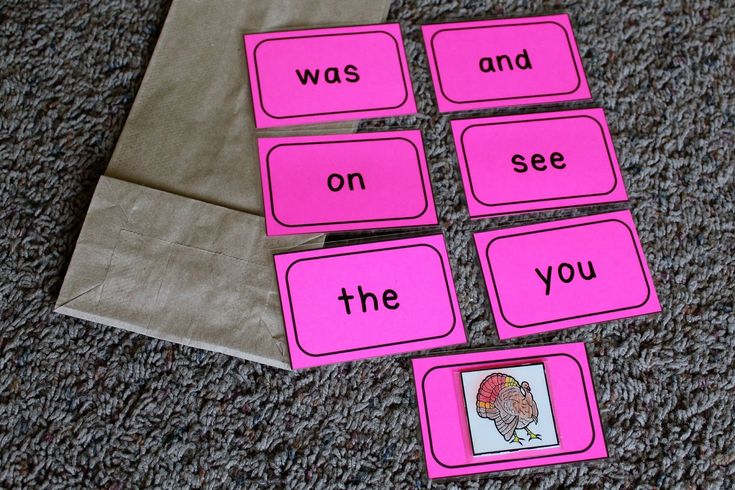 And, when they were ready, reading started to happen.
And, when they were ready, reading started to happen.
Xman reading sight words as he tries to find a match.
Don’t fear fun! Learning can be enjoyable, even something to be eagerly anticipated.
This free sight words memory game is one of the ways I’m making this process fun for my lil’ man. It has become one of his favorite ways to practice sight words (and that makes my homeschool mama heart so happy!).
Creative Ways to Boost the Learning Fun with This Sight Words Memory Game
Not sure if a sight words memory game is going to engage your young learner? Here are a few ways that Xman and I are making the most of this special time to learn and practice sight words with this game:
- Add fun challenges when a sight word match is made. Do five toe touches. Or stick your tongue out and pat your head. Something to make the game interesting and silly.
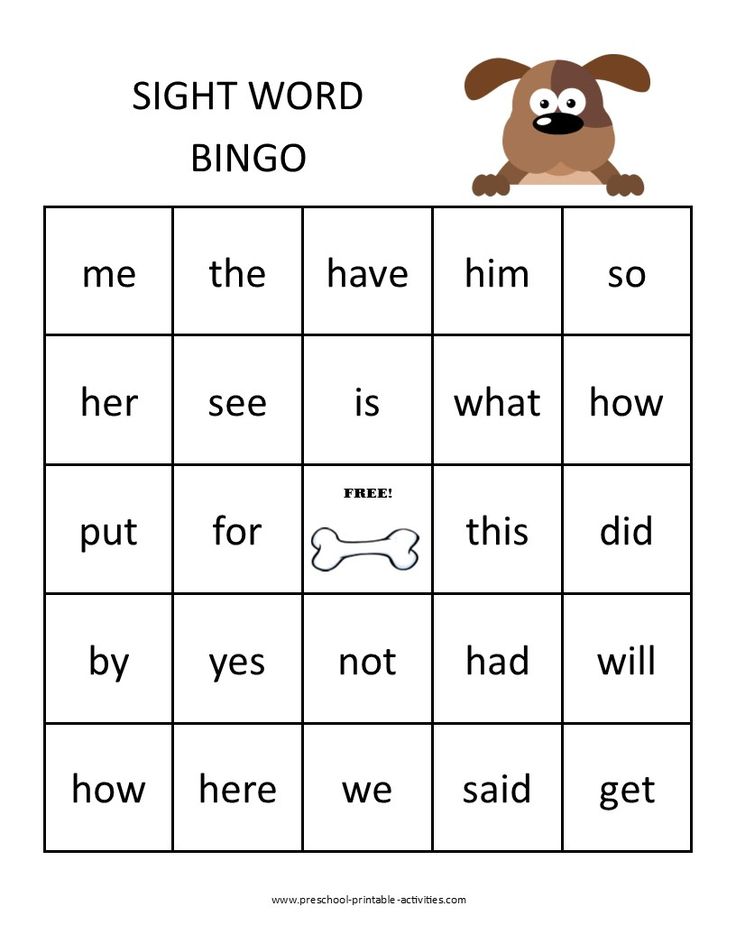
- Play music in the background. Recently, I’ve discovered that my boys get so much more out of our learning fun when I softly play music during a game or activity. If you’re adding movement prompts for fun challenges, energetic music would work well. If focus and attention are required, classical or relaxing music may be best.
- Tally it up! For every match made, make a tally mark. Keep score and see who gets the most sight words matches. (Great for a bit of math practice!)
- Practice growth mindset fun. Learning something new is a challenge. And can become frustrating, fast. Gently remind your child of how we grow and learn when we make a mistake-and how we can work towards mastery with practice and persistence.
- Plan a special event or activity. When your child has mastered the set of sight words memory game, play a board game, go to the library, or have a yummy treat.
- Have flashcard fun! There’s nothing wrong with flashcards, per se.
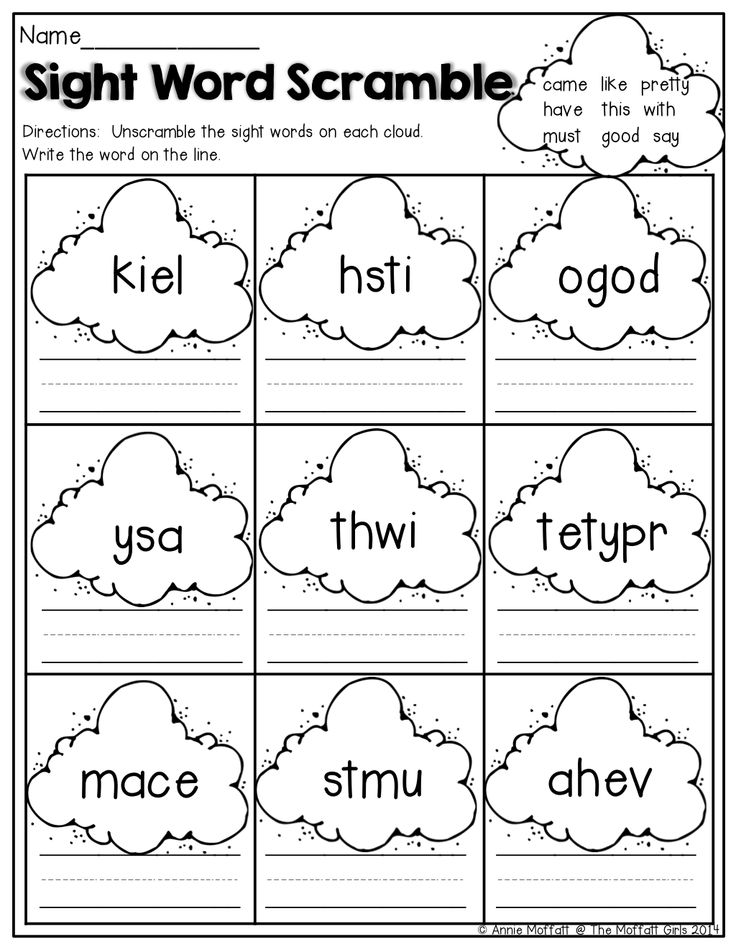 Some kids really like them. Most kids benefit from using flashcards, even if not a favorite activity. Instead of drill-and-kill, spice things up a bit. Add a hands-on component, like forming the letters with playdough or using Scrabble tiles to spell the sight words after reading a flashcard.
Some kids really like them. Most kids benefit from using flashcards, even if not a favorite activity. Instead of drill-and-kill, spice things up a bit. Add a hands-on component, like forming the letters with playdough or using Scrabble tiles to spell the sight words after reading a flashcard.
Easy Steps for Playing Sight Word Memory Games
Each of these free sight word memory games contain 25 words. You know your child best 🙂
If your child is new to learning and practicing sight words, you might want to start small with 5 or 10 pairs and build from there.
If your child is ready for a bigger challenge, use all 25 pairs (or mix up sets!).
- Print out your sight word memory games on white cardstock.
- Use scissors or paper trimmer board to cut out each card.
- Shuffle cards.
- Place cards with sight words down in rows (or circles or however your child wants to play!).
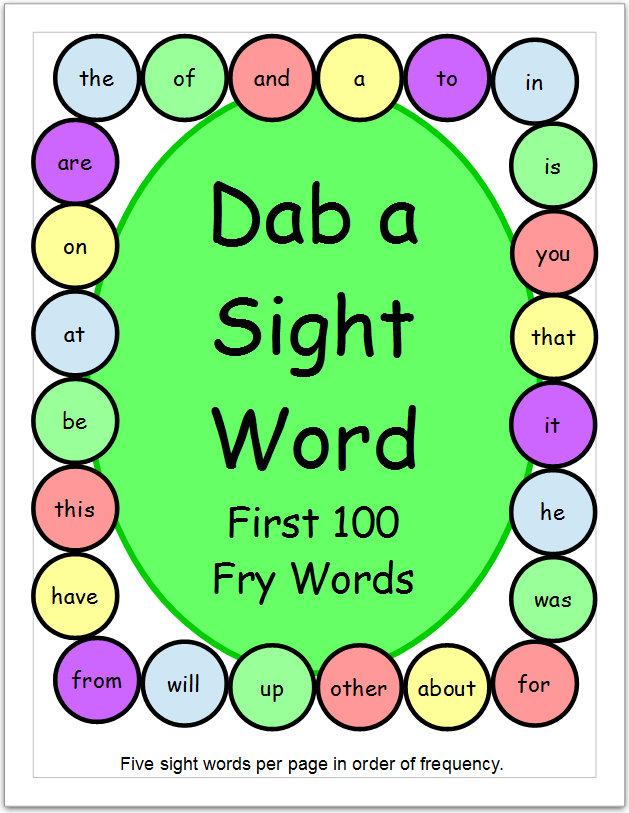
- Determine if you’ll make it a two-person (or more) game or if your child will independently play. If a multi-player game, determine who will go first.
- The player turns over two cards at a time to try to make a sight words match. The player reads both cards.
Encourage your child to give best effort in reading the sight word. If your child needs help, give clues or read sight word aloud and have your child repeat. - If a match, place the cards in win pile. If not a match, the cards remain in play.
- If a match is made, player continues turn until no match is made. If multi-player game, next player takes turn.
- Play continues until all sight words are matched.
- Optional: Tally how many sight word matches each player has. The highest total wins!
- Celebrate reading and practicing sight words with this fun game 🙂
- Store sight words memory game cards in plastic sandwich bags or other simple storage container.
 Label for future use.
Label for future use.
Get Your Free Sight Words Memory Game for Reading Fun
Want to have reading fun with these sight words memory games? Get your free printable pack today!
I’m currently building this free sight words memory game pack. In this download, you’ll receive 8 separate downloads. Each download contains memory game cards for 25 different words.
These printables are based on Fry Sight Words and are currently for First Hundred and Second Hundred. (I’ll continue to add as I work on these sight words with my lil’ man. The Fry Sight Words lists go up to Tenth Hundred.)
I color-coded the sight words memory games based on the Fry Sight Words divisions as such:
- Red: 1-100
- Orange: 2-100
- Yellow: 3-100
- Green: 4-100
- Blue: 1-200
- Purple: 2-200
- Gray: 3-200
- Black: 4-200
I’ve found that it’s nice to be able to differentiate between the sets in case they get mixed up 😉
**I recommend printing this sight words memory game on white cardstock.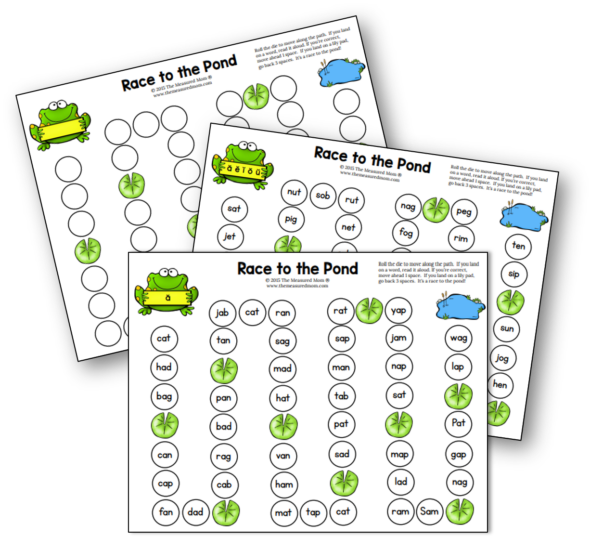 The thickness of cardstock prevents transparency (see-through) and can still be used in printers.
The thickness of cardstock prevents transparency (see-through) and can still be used in printers.
Please feel free to print as many of these sight words memory game cards as you need for your family or class. If you know a friend or co-worker who you think would enjoy sight words fun with their kids, please share the link to this post. Your sharing is very appreciated!
When you subscribe and join the Rock Your Homeschool community, you’ll receive this printable pack in a PDF download in an email, along with a password to open the library to all RYHS freebies. In addition to your freebies, you will get emails with ideas and encouragement to make learning fun (plus instant downloads to all new freebies!).
**I’ll send emails with updates for when I update this printable pack with other sight words memory game cards.
(Psst! Current RYHS members just need to access the Subscriber Freebies page and enter the password in your welcome email. Or get the instant download in the email the week of this post.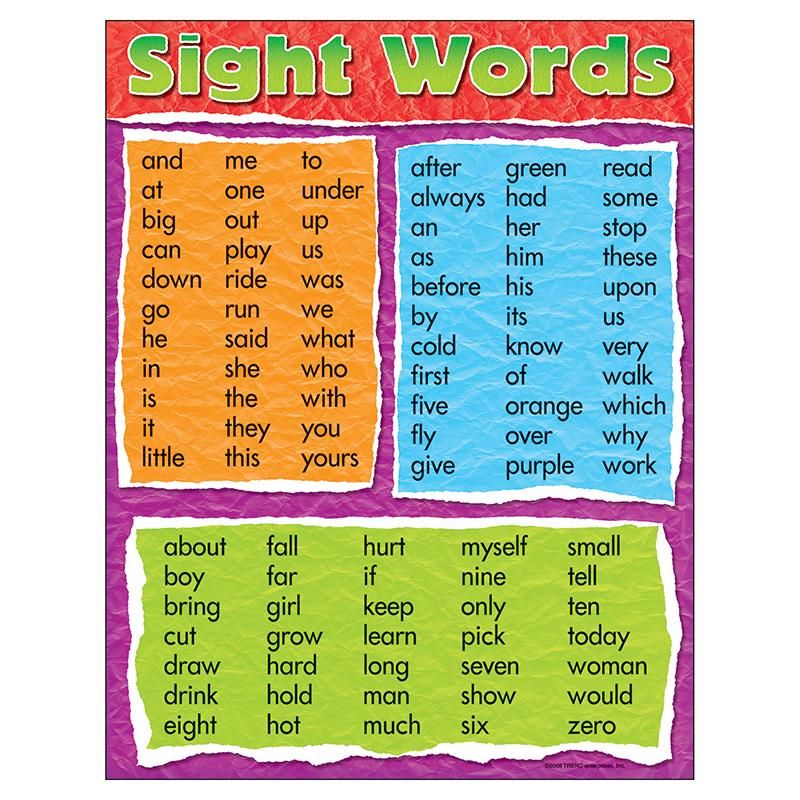 )
)
Click on the image below to subscribe and get your free printable Sight Words Memory Game sets!
Have you tried these sight word memory games with your kids?
Please share your experiences or questions in the comments area below 🙂
Sharing is caring!
149 shares
- Share
- Tweet
Useful games with children on the road and on vacation
The long-awaited summer has come, the season of trips, travel, and recreation. To keep a child busy on the road, to avoid whims and fatigue, to spend meaningful time on the road, we suggest remembering simple games that not only help diversify leisure time, but also contribute to the development of children.
"One Letter", "Word for Word", "Good-Bad", "Tales Inside Out", "What Happened Then?", "I Know Five Names" - a description of these and many other games that will allow you to have fun and spend time productively with your child, read on these pages.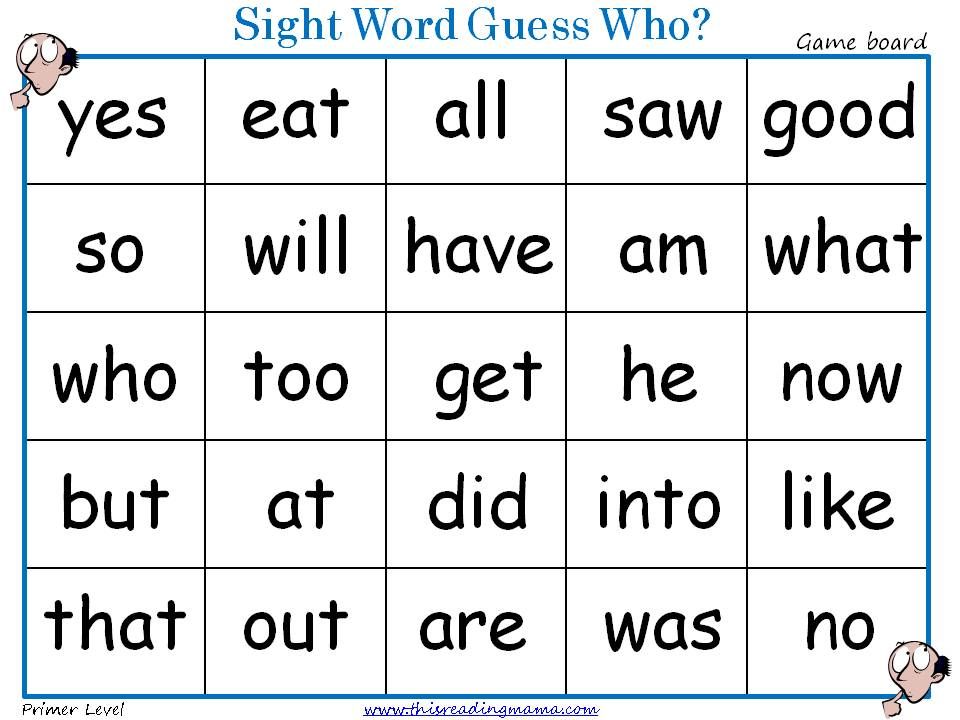
[av_table purpose='tabular' pricing_table_design='avia_pricing_default' pricing_hidden_cells=" caption=" responsive_styling='avia_responsive_table' av_uid='av-1xoqrmw'] [av_row row_style=" av_uid='av-1oakk14′][av_cell col_style=" av_uid ='av-18hkl6w']TIP: Start playing before your child gets bored or fussy. Remember, it is important for a child that you are not just nearby, but that you do one common thing. This is the most important condition for harmonious education. You can do anything: compose a non-existent language, make faces at each other, the main thing is to do it together! [/av_cell][/av_row] [/av_table]
We wish you a pleasant stay and an exciting game!
[av_image src='https://old.gppc.ru/wp-content/uploads/2017/06/poleznye-igry.png' attachment='25811′ attachment_size='full' align='center' styling=" hover =" link=" target=" caption=" font_size=" appearance=" overlay_opacity='0.4' overlay_color='#000000' overlay_text_color='#ffffff' animation='no-animation' admin_preview_bg=" av_uid='av-w4tsaw '][/av_image]
We develop speech
Cities
Players take turns naming cities or words on a given topic, such as the names of animals.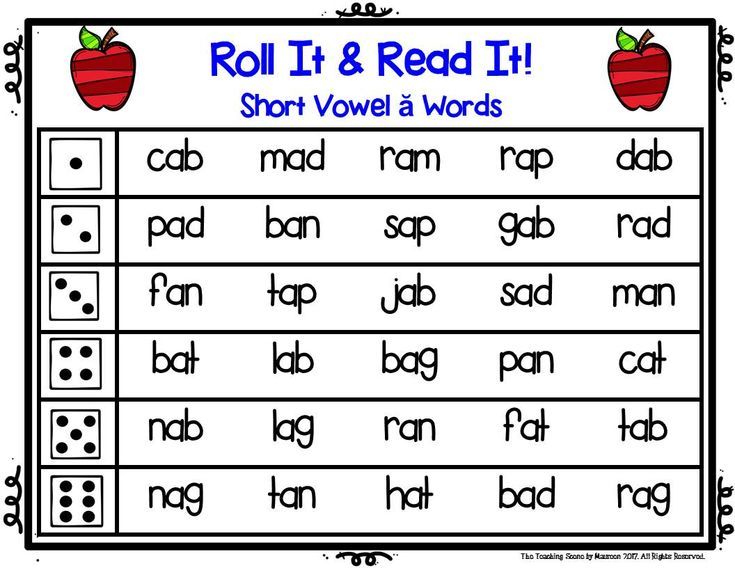 Each player comes up with a word starting with the last letter of the previous one.
Each player comes up with a word starting with the last letter of the previous one.
Chain
In a simple variant, players name words one after another in such a way that each new word begins with the last letter in the word named by the previous player. Only common nouns in the singular are used. It is forbidden to repeat the words mentioned earlier. For complication, you can choose a topic - for example, "transport", "animals", "food".
I know five names…
The child must name five items on a given topic. In the classic version, a ball is used, which, when naming each object, bounces off the floor once. If conditions do not allow playing with the ball, you can choose any other action accompanying naming that will rhythmize the child’s speech (for example, you can clap your hands or stamp your foot).
Words
Participants must take turns naming objects on a given topic, by a given letter or syllable, by a given picture, etc.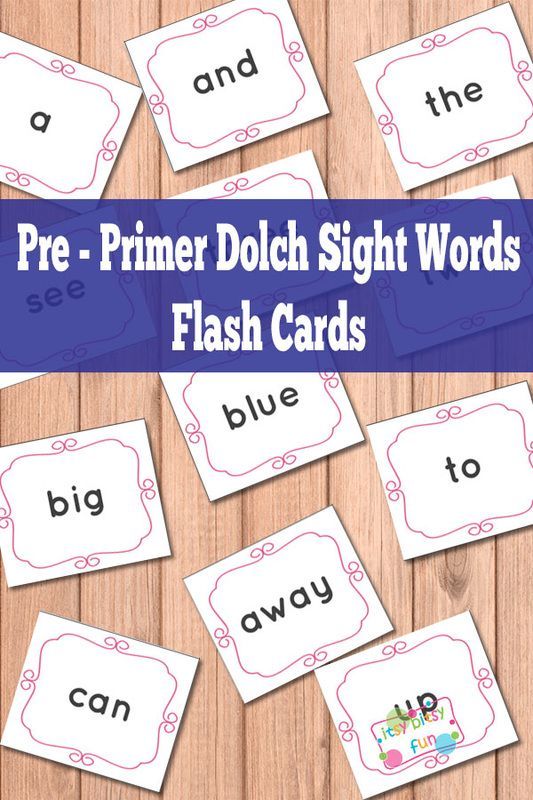
Non-existent word
Narrator: “ I came up with some new words. Each of these words consists of two words that you know well. Tell me what are the words hidden in my new ones. The leader calls his “words”, while the children must guess what words the leader made up of.
Match the concept (word) to the definitions. For example: yellow, warm, bright Answer: the sun.
Magic word
First, you should agree on what words are considered "magic". “Magic” can be considered words starting with the letter “M” or any other letter (then the game will simultaneously develop the child’s phonemic hearing), or it can be words denoting birds, pets, etc.
You tell a story or say any words in a row. When pronouncing the “magic words”, the child must give a signal: to hit the table with his palm (raise his hand up or stand up).
Speaking poem
While reading the poem, say the underlined words together with your child.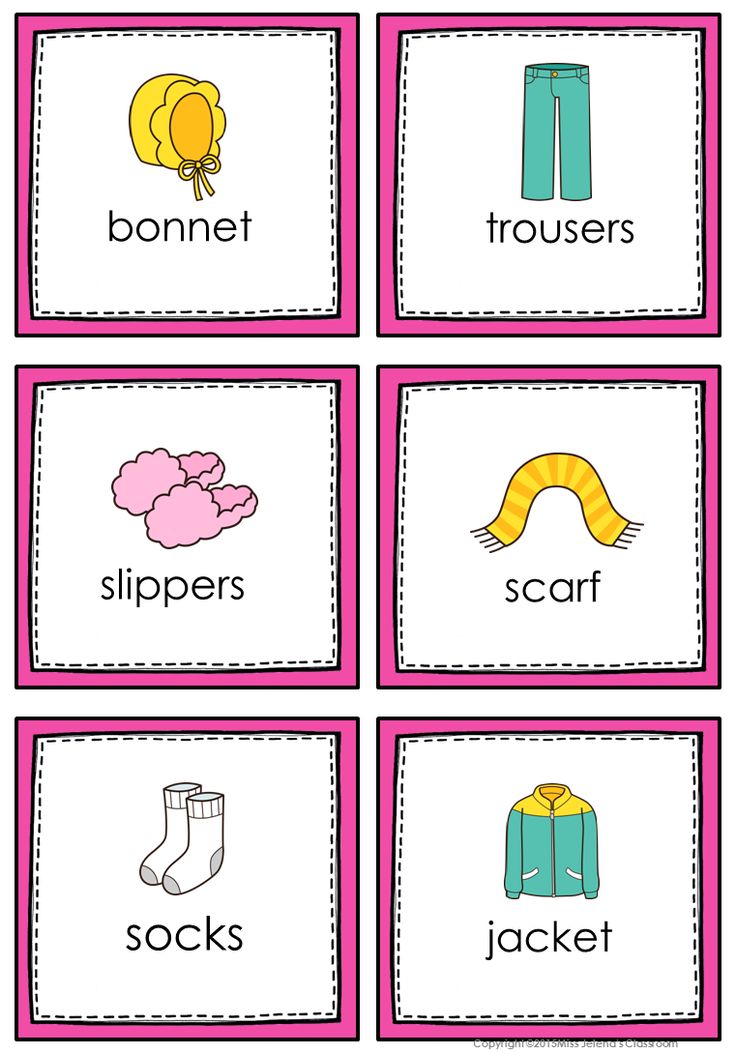
A cow was grazing in the meadow - "Moo-oo, moo-oo."
The striped bumblebee flew - "Z-z-z, z-z-z."
The summer breeze blew - "F-f-f, f-f-f."
The bell rang - "Ding, ding, ding."
A grasshopper chirped in the grass - "Tr-r-r, ts-s-s."
The prickly hedgehog ran - “Ph-ph-ph”.
A little bird sang - "Til-l, til-l."
And the angry beetle buzzed - "Wh-wh, w-w-w."
Developing attention
Bulgaria
The host and the children have a dialogue, instead of “yes” you need to say “no” and shake your head, instead of “yes” and nod.
Don’t say yes or no, don’t take black and white any other colors/qualities, etc.).
Be careful!
Moderator: “If I name something that or who can fly, you clap your hands once, but if it’s something else, then you can’t clap.” You can also clap your hands when you see a certain object.
Catch a fish
The facilitator holds one arm bent at the elbow - this is the sea.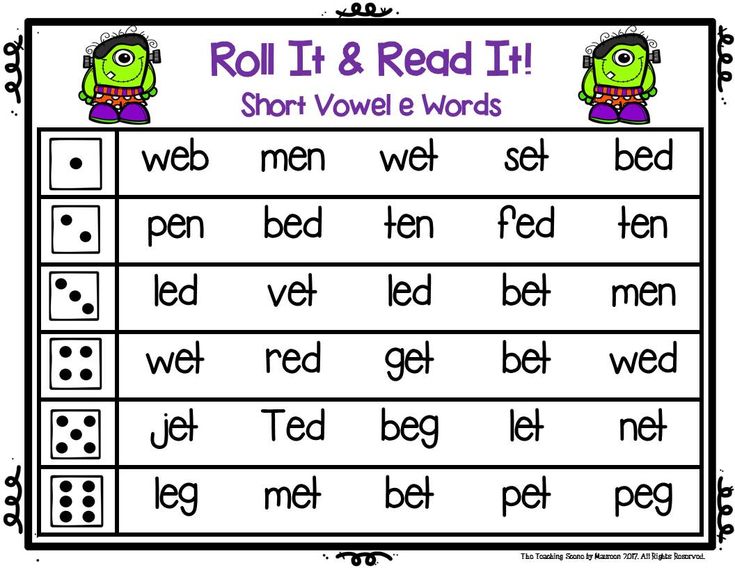
The second hand represents a fish. If the fish emerges from the water, the child must catch it - clap your hands. Then we make the game harder. Add additional actions:
- if the leader removes his hand behind his back (the fish hid behind a pebble), you need to stomp your foot;
- if the host calls the word "seagull", the child should say in response: "Fly away."
Developing visuospatial functions
Fly
The child draws the flight path of the fly at the command of the leader: left, right, up, down, diagonally right, etc.
Far-close
Looking at objects in the environment, comparing them with each other.
Drawing with two hands
Attach a piece of Whatman paper to any vertical surface (door, wall, closet), give the child a pencil or felt-tip pen in each hand and invite the child to draw circles with both hands at the same time:
- both hands draw circles from left to right, both hands draw circles from right to left,
- the right hand draws from left to right while the left hand draws from right to left at the same time,
- The right hand draws from right to left, while the left hand draws from left to right at the same time.
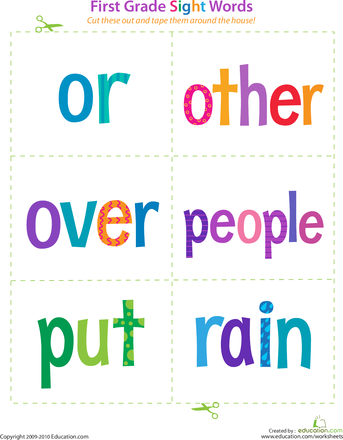
Developing memory
Couples
The player needs to remember a combination of two words, both suitable in meaning and not.
Remember and repeat
The host thinks of several movements or a sequence of words. The players repeat.
Mnemonics
Inventing unusual visual images to memorize words.
Developing thinking
We are going on a trip
“Let's imagine that we have a long and long journey ahead of us. What to bring? The question that arises in front of every traveler. Name, without interrupting each other, the things necessary for the journey. The winner is the one who names the last one of the most necessary things on the journey.
Notes: It should be noted that this game can drag on for an indefinitely long time. And all because the guys “took on a trip” not the most necessary things at all: electric stoves, beloved dogs, bicycles, TVs, even grandmothers, etc.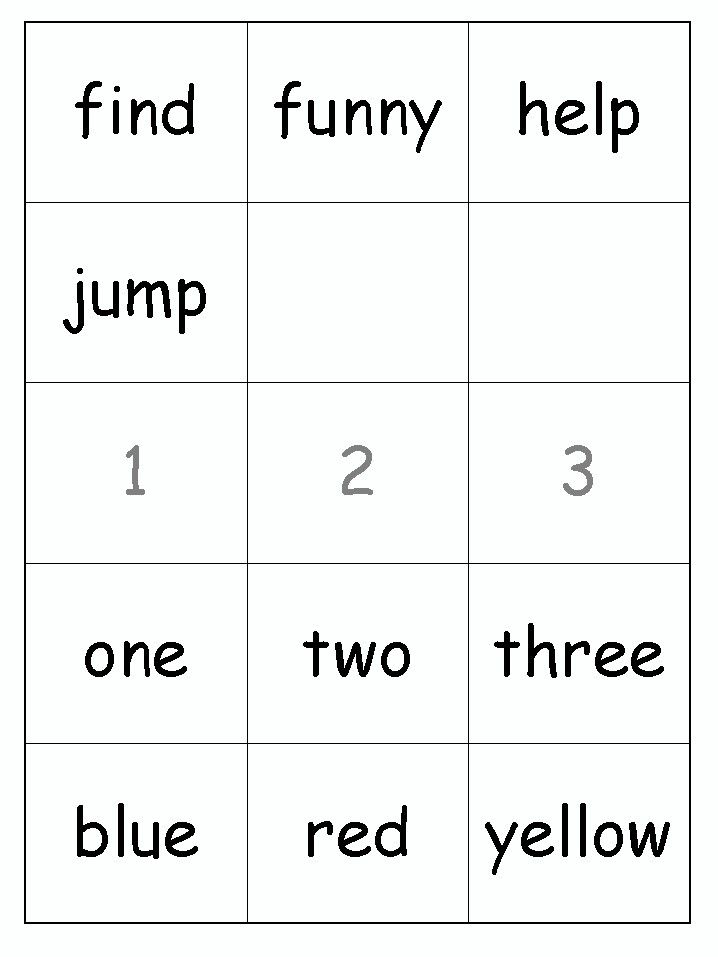 Don't play!
Don't play!
3 liter can
Any letter can be selected. All players in turn begin to list words (nouns, in the singular, nominative case, without diminutive suffixes) for the selected letter, but at the same time such that they can be “put” in a three-liter jar. For example. We chose the letter "C". Words such as “matches”, “straw”, “sulfur” can “fit” into it ... But you cannot put “table”, “knock”, “chest”. Also, you can not "put" the drawn objects. The game seems easy at first, but after a while it gets harder and harder. The player who does not find more of the right words is out. The one with the most words wins.
Number game
If you are driving a car or walking down the street, you can play number games with a child of any age:
- Learn numbers by looking for cars with certain numbers in the numbers;
- Learn the alphabet by choosing cars with certain letters of the alphabet;
- Learn to compare - find cars with 2 duplicate or consecutive numbers;
- Learn to count - add up the numbers in the number plate in front of the moving car or look for cars with a certain value of the sum of all the numbers.

Guessing game
Guess an object that is in the children's field of vision. The rules are the same as for the game above. Participants ask probing questions about the characteristics of the item that can only be answered with “yes” or “no”.
Sea battle, tic-tac-toe are well-known and popular games. All they need is paper and pencils.
Developing vocabulary
One letter
An adult asks the children to look around the room and name all objects that begin with the letter "K" (or any other letter). The winner is the one who is the last to name the word with the letter "K". (cubes, paints, books, cat, cornice…”
Word by word
The adult defines the topic, for example, “Birds starting with the letter C”. First player starts: bullfinch (or other bird). The child repeats this word and adds his own: for example, bullfinch, tit ... The next player repeats these two words and adds his own: bullfinch, tit, magpie.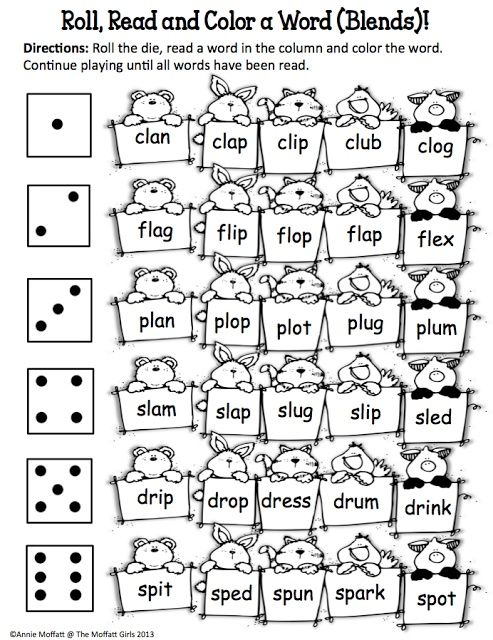 The game continues until someone fails.
The game continues until someone fails.
Only funny words
The leader determines the topic. It is necessary to call in turn, for example, only funny words. The first player says: "Clown". The second: "joy", the third - "laughter", etc. The game continues until the words run out. You can change the subject and name only green words, only round words, only spiky ones, etc.
Good-bad
An adult introduces a child to some phenomenon (object, image), say, rain, and asks him to answer the question: what is good about rain?
Children express their opinion (for example, “he feeds the earth”, “I like to look at him”, “he washes away dirt and dust from the roads”, etc.
Then the adult asks: what is wrong with rain?
Children speak out: “no one goes for a walk”, “it gets cold and you can get sick”, etc.
An adult might also ask this question: How do we decide if rain is good or bad?
Or this: rain is good for whom and what?
Rain is bad for whom and what?
In this game, you can also use controversial images (Barmaley, fear, illness).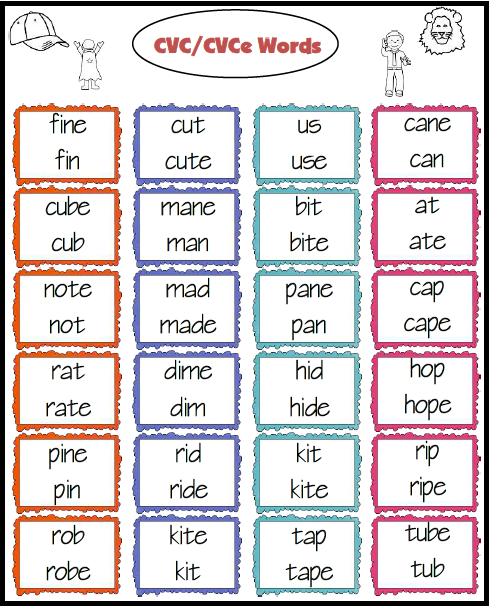
From bad to good
An adult offers children to play transformations: make good out of bad, good out of evil, strong out of weak.
He writes or pronounces a word, for example, “angry” and suggests gradually, choosing words, to turn the word (for example, “angry” - “angry” - “displeased” - tolerant - sympathetic - "attentive" - "caring" - "Kind").
You can try such transformations with any pair of antonyms.
General word
The leader pronounces the first syllable. All other participants in a circle add one letter at a time so that the word is beautiful, unusual, not much like anything else. If one of the participants feels that there is no need to add anything, that the word is ready, he says “Stop!”. The word is repeatedly pronounced, sung, whispered, so that everyone can think what it could mean, and everyone gives his own version of the meaning of the word.
For example: Livefuravia is rain in the tropics; this is a fairy planet.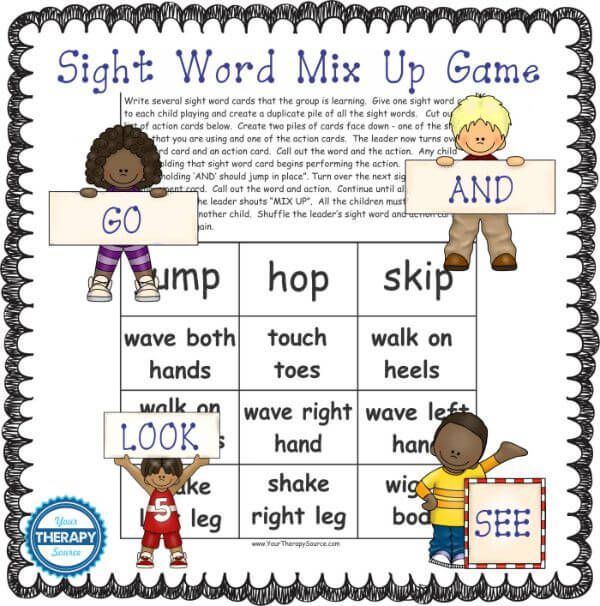
Fairy tales inside out (based on D. Rodari)
An adult invites children in a well-known fairy tale to swap the main characters in places, i.e. to make the good ones evil, the brave ones cowardly, etc. For example, let the children invent and tell a fairy tale "Teremok" so that the teremok collapsed not because of the bear, but because of the mouse.
What happened next?
An adult invites children to come up with a sequel to one of the famous fairy tales. For example, he tells or reads the fairy tale "The Snow Maiden" and asks: what happened then, after the Snow Maiden turned into a cloud and rose into the sky?
Another great "fallback" option for keeping the kids entertained on the road is to let the kids offer you their games. They love it very much.
Memory games | Methodical development on the topic:
Students' knowledge of the features of their memory will help them not only overcome shortcomings, but also find an individual memorization style.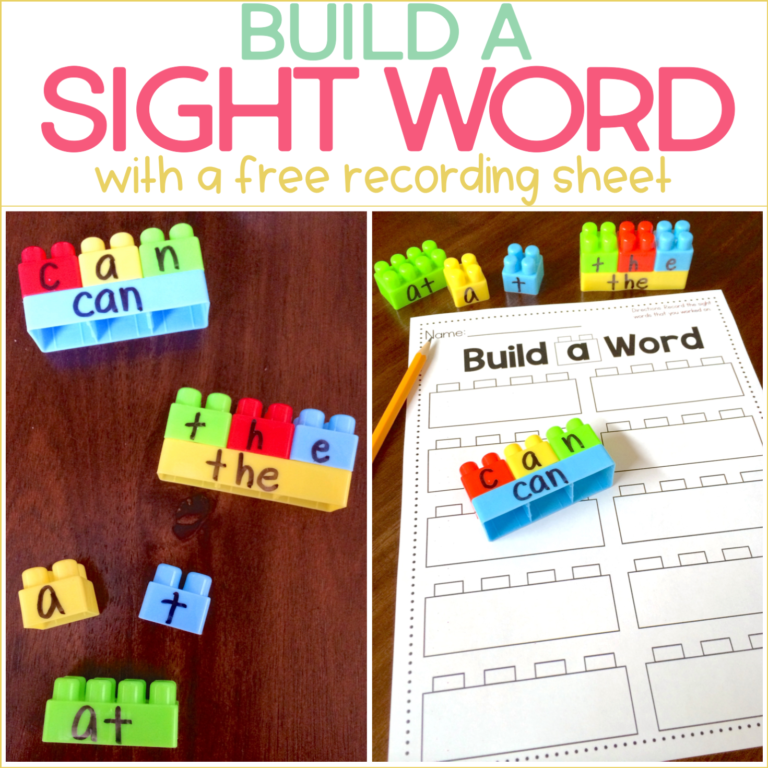
The teacher's task is to help the student in this search and stimulate the development of his memory.
The development of memory through the installation of memorization.
"Remember the commands" game.
Purpose: to learn to memorize commands at once (with a gradual increase in the number of commands from 3 to 7).
Game progress.
1). The adult gives the child the task of memorizing several commands and naming them. For example: "Field the flowers, put the scissors in place, find the ball."
2). The child repeats the commands aloud and performs them in order.
3). Parents evaluate the completed task: for each memorized and completed command, one or another number of points is established.
4). Game continues. In the new task, the number of teams increases.
Development of memory selectivity.
Tasks.
Note. Each time the child receives no more than one of the tasks listed below.
- Remember today.
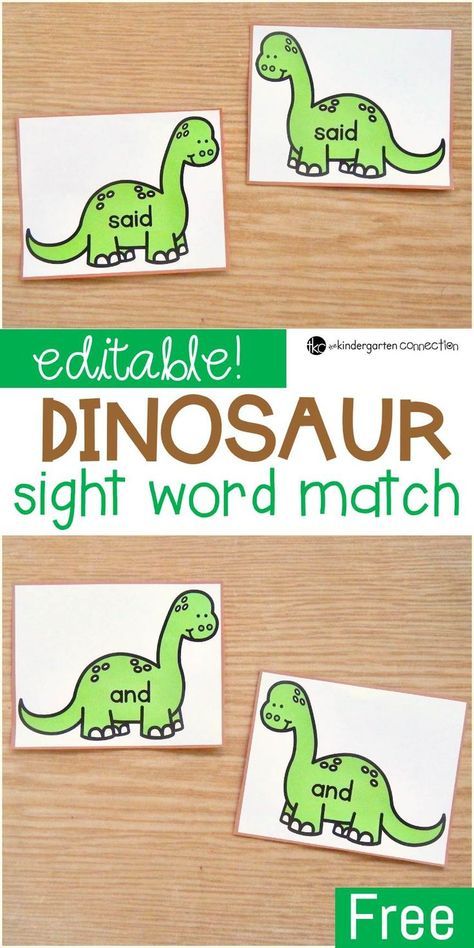
- what did you learn at school? (In a circle? From a book? From comrades?)
- what was good? (bad?)
- whom did you meet?
- What useful actions (deeds) did he perform?
- Remember in a TV show, or in a movie, or in a cartoon:
- the sequence of events.
- Names of heroes.
- Funny episodes.
- Incomprehensible moments.
- Remember while walking in the park:
- what plants did you see?
- What kinds of sports did people do?
- Remember when visiting the store:
- department names.
- What types of bread products were in the bakery?
- Remember during the holidays:
- what new did you learn?
- What phenomena of nature did you observe?
- The geography of their trips.
- What sights did you see?
- Game "Remember only the names of flowers" (or animals, or toys, or vehicles, etc.
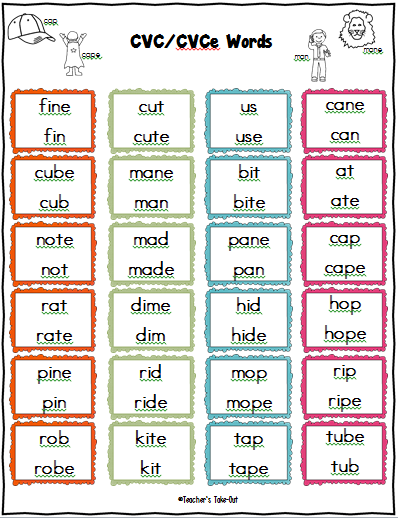 )
)
Each player has a sheet of paper and a pen. The facilitator tells the names of which items should become objects for memorization, and pronounces a series of words. For example: TV, bus, bread, poppy, plane, etc. The participants in the game must listen to the words from beginning to end, memorize only those that are set according to the condition of the game, then write them down in any order.
One point for each memorized word. Words intended for memorization, maybe 6-10.
Development of the amount of memorized material.
- Repeat game.
The players sit in a circle. One of the players names an animal, let's say a fox. The next one repeats the word fox and adds the name of another animal: bear. The third says: fox, bear - and adds the word tiger. Each playing player, after listing all the previously named animals, says one more word. If someone fails to repeat the names of all the animals or mixes up their order (the leader monitors this), he is eliminated from the game.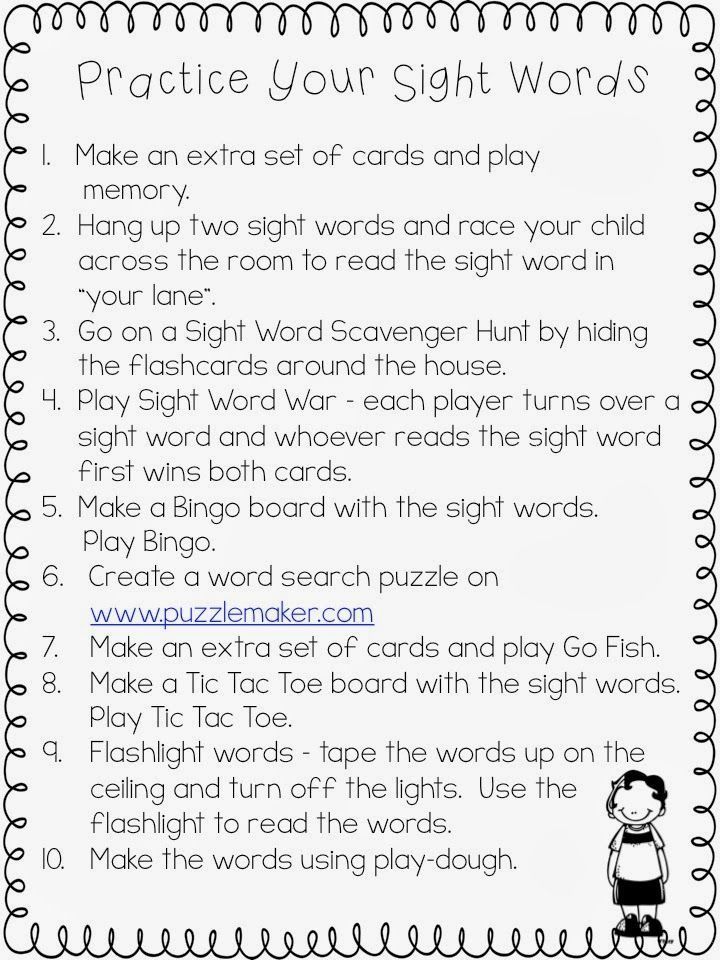 The list of animals is growing, it is becoming more and more difficult to remember it. The one with the best memory wins.
The list of animals is growing, it is becoming more and more difficult to remember it. The one with the best memory wins.
When repeating the game, you can choose words on other topics.
- Look and remember game.
The game is played while walking. The child is invited to remember in detail everything that he sees in front of him in 5-10 minutes. For example, if this is a house, how many floors, windows, doors, balconies does it have, is there an antenna, etc. if there is a corner of the park in the field of view, then what kind of trees are there, what is their height, the thickness of the trunks, etc.
After the time has elapsed, the participant in the game is turned in the opposite direction and asked to list what they have memorized. The leader can ask questions. For example: “What color is the rest bench?”
One point is awarded for each correct answer.
- Say the sixth game.
Several people are playing.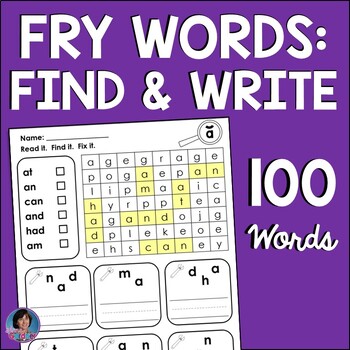 One of the players is the driver. He addresses someone with a sentence: "Say the sixth" - and quickly names five plants (or animals, birds, fish, insects, etc.) in a row. The one to whom the driver addressed should immediately name the sixth word on the same topic. You cannot repeat what the driver said.
One of the players is the driver. He addresses someone with a sentence: "Say the sixth" - and quickly names five plants (or animals, birds, fish, insects, etc.) in a row. The one to whom the driver addressed should immediately name the sixth word on the same topic. You cannot repeat what the driver said.
If the answer is on time, then the answerer drives, if not, the driver remains the same.
Word game.
Aimed at the development of verbal memory of children of primary school age.
Instruction to the child: write down as many words as possible related to the topic: 1) school, 2) mathematics, 3) knowledge of the world, 4) music, 5) book, 6) art, 7) autumn, 8) winter, 9) spring , 10) summer, 11) ethics and others.
Five minutes are given for each topic. This game can be played in several stages, offering schoolchildren two or three words for work.
Reproduction of the story.
Instructions: a story will be read to you, listen to it carefully, then, within three minutes, write down the main content.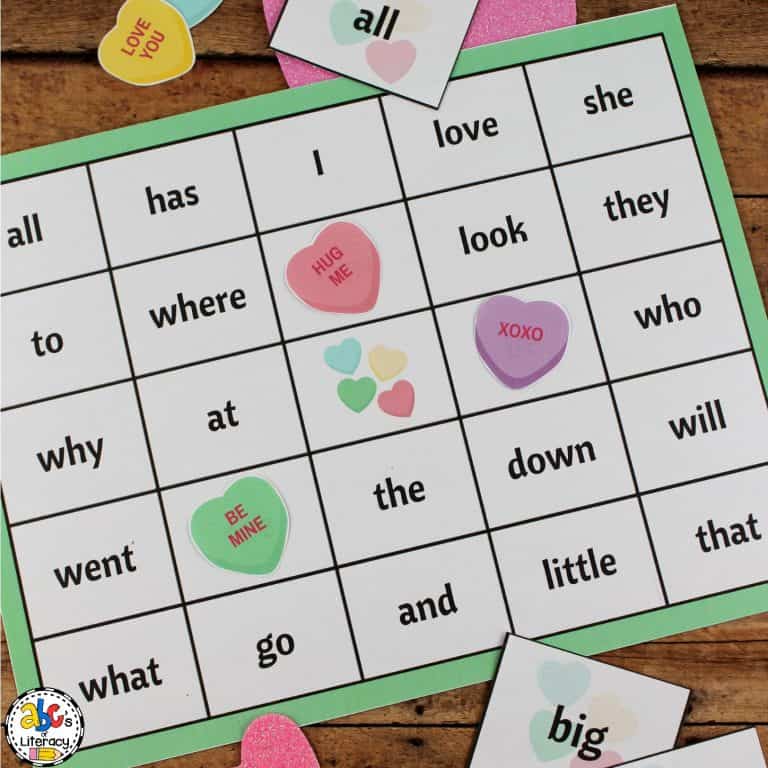
Bad watchman.
A housewife's mice ate bacon in the cellar, then she locked the cat in the cellar. And the cat ate both fat and meat and also drank milk.
Jackdaw and doves.
Jackdaw heard that pigeons are well fed. She painted herself white and flew into the dovecote. Pigeons accepted her as their own, fed her. But the jackdaw could not resist and croaked like a tick. Then the pigeons chased her away. She was about to return to the jackdaws, but they also drove her away.
Smart Jackdaw.
The jackdaw wanted to drink. There was a jug of water in the yard, and there was only water in the jug at the bottom. The jackdaw couldn't get it. She began to throw pebbles into the jug and threw in so many that the water rose higher and it became drinkable.
Ant and dove.
The ant wanted to get drunk and went down to the stream. The wave swept over him and he began to sink. A dove flying past noticed this and threw a branch into the stream.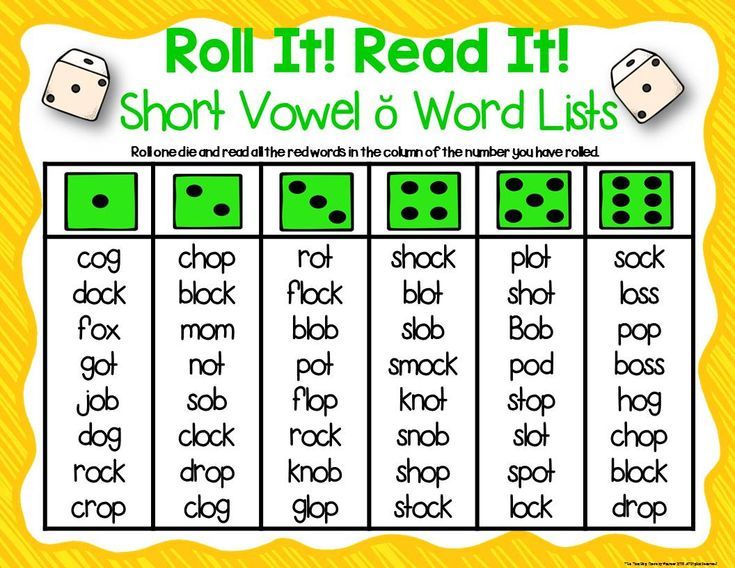 An ant climbed this branch and escaped. The next day, the ant saw that the hunter wanted to catch the dove in a net. He crawled up to the hunter and bit him in the leg. The hunter screamed in pain and dropped the net. The dove fluttered and flew away.
An ant climbed this branch and escaped. The next day, the ant saw that the hunter wanted to catch the dove in a net. He crawled up to the hunter and bit him in the leg. The hunter screamed in pain and dropped the net. The dove fluttered and flew away.
Exercises for the development of logical or semantic memory.
Students read three words, united in meaning, while paying attention to the logical connection that exists between the words. For example: forest - bear - lair. The teacher reads aloud six lines of three words each. Then he offers the student a card on which only the first words of each line are written, the child must complete the second and third word of each line.
A) spring - sun - stream
River - fisherman - ear
Holiday - songs - fun
Bridge - river - water
Bee - hive - honey
Oak - acorn - pig.
B) student - school - stadium
Report - discussion - decision
Reading - eyes book - competition
Forest - tree - shrub
City - street - building
War - battle - soldiers
Hospital - doctor - patient
Lake - shore - water.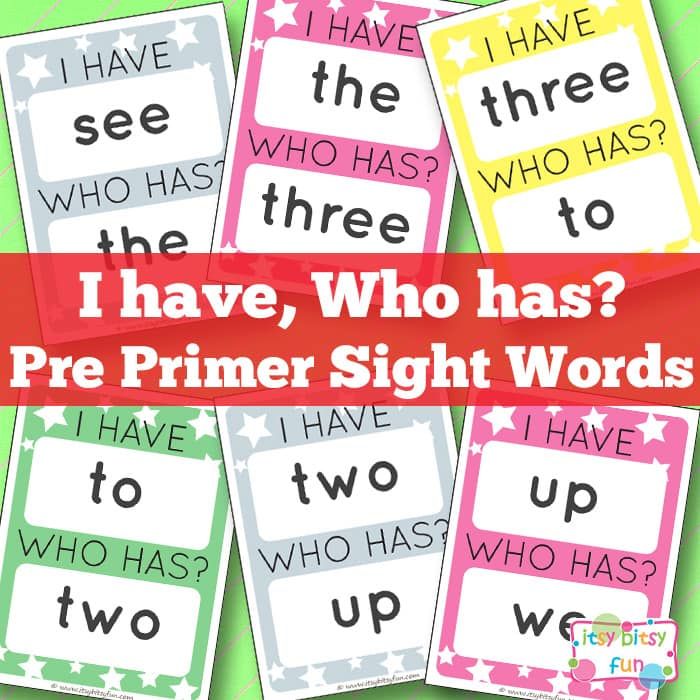
The game "Who will remember more"
The participants of the game sit in a circle. The first participant calls any word. For example, a flower. The next participant in the game repeats the named word and pronounces any of his own. For example, forest. The third participant in the game repeats two words already and pronounces his own. And so on. The winner is the one who reproduces the most words.
Game "Memorize by drawing"
The facilitator prepares a list of 20 words in advance. Each of the participants in the game prepares a pen and a piece of paper. The facilitator sequentially names the words, after each word counts up to three. During this time, the participants in the game must have time to draw the named word with any drawing to memorize. Let the drawing be not entirely clear to others, if only the player could then name the words in order. Whoever remembers the most words wins.
Color game
The facilitator invites all students to name five objects of the same color in turn. Anyone who cannot remember five objects of the named color in one minute is out of the game. Repeating items already mentioned is not allowed.
Anyone who cannot remember five objects of the named color in one minute is out of the game. Repeating items already mentioned is not allowed.
Game "Shape of Objects"
The facilitator invites all students to name five objects of the same shape in turn. One of the participants in the game. Who in one minute will not be able to remember five items. Possessing the named feature, is eliminated from the game. It is not allowed to repeat the named items.
“Whose object”
Participants are divided into 2 teams. Each team chooses a leader. The game consists in the fact that in front of the driver, the members of his team put one item on the table. The driver looks and tries to remember who put what item and in what order the items were laid out. Answers are evaluated by the driver. Everyone should act as a leader.
"Visual memory"
Participants are divided into 2 teams. One of the participants will draw their own portrait. All participants in the game consider this portrait, try to remember all the details. The facilitator then asks all players to look away and makes as many changes to this portrait as possible. Then players from each team should approach the portrait one at a time to correct the changes. Whichever team fixes the most changes wins.
"Retelling in a circle"
The facilitator reads the text. The participants of the game listen attentively. Retelling begins with any of the players. Next, clockwise. Everyone speaks one sentence at a time, then all together listen to the text again and complete the retelling, correct the mistakes made.
"Memorize the text"
The participants of the game are divided into two teams. The facilitator reads the text. All participants in the game listen carefully, then everyone writes down what they remember on a piece of paper. Members of each team exchange information, restore the text from memory. Then all participants discuss the reproduced texts, compare the results.
"Learning the text by heart"
The participants of the game are divided into 2 teams.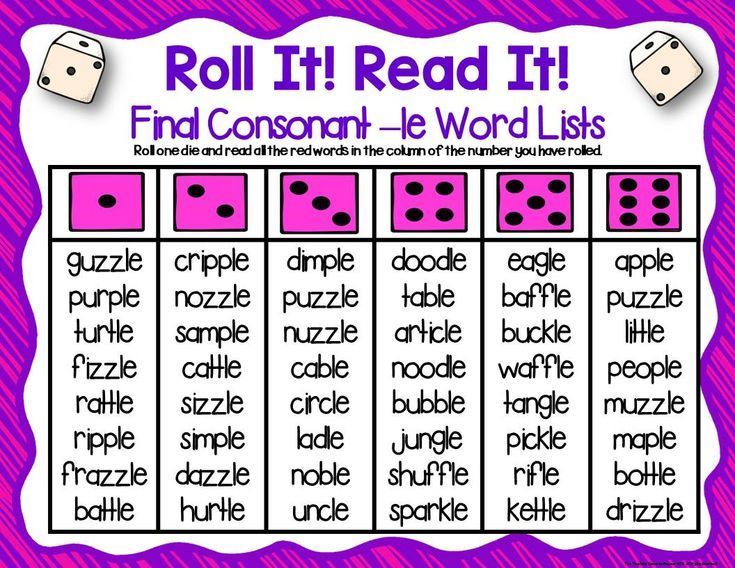 Each participant in the game is given a printed text. Everyone is invited to read it, then to recite it by heart. 1 minute is given to work with the text. Each team needs to highlight the desire to compete. First, the player of the first team comes out, begins to recite the text by heart until the first mistake. Host command: stop. Then the player of the second team begins to tell the text, again up to the first mistake, etc. In this way, the player who will tell more than others or reproduce the entire text is determined. He will be the winner.
Each participant in the game is given a printed text. Everyone is invited to read it, then to recite it by heart. 1 minute is given to work with the text. Each team needs to highlight the desire to compete. First, the player of the first team comes out, begins to recite the text by heart until the first mistake. Host command: stop. Then the player of the second team begins to tell the text, again up to the first mistake, etc. In this way, the player who will tell more than others or reproduce the entire text is determined. He will be the winner.
Text and noun
The facilitator reads the text, explains what is needed, how best to remember it. The retelling will take place collectively. In order to remember better, each of the participants must mentally divide the text into many small parts, and instead of a large and detailed story, they must name a noun that fully corresponds to this small piece. Moreover, each subsequent participant in the game repeats the noun named by the other player and adds his own.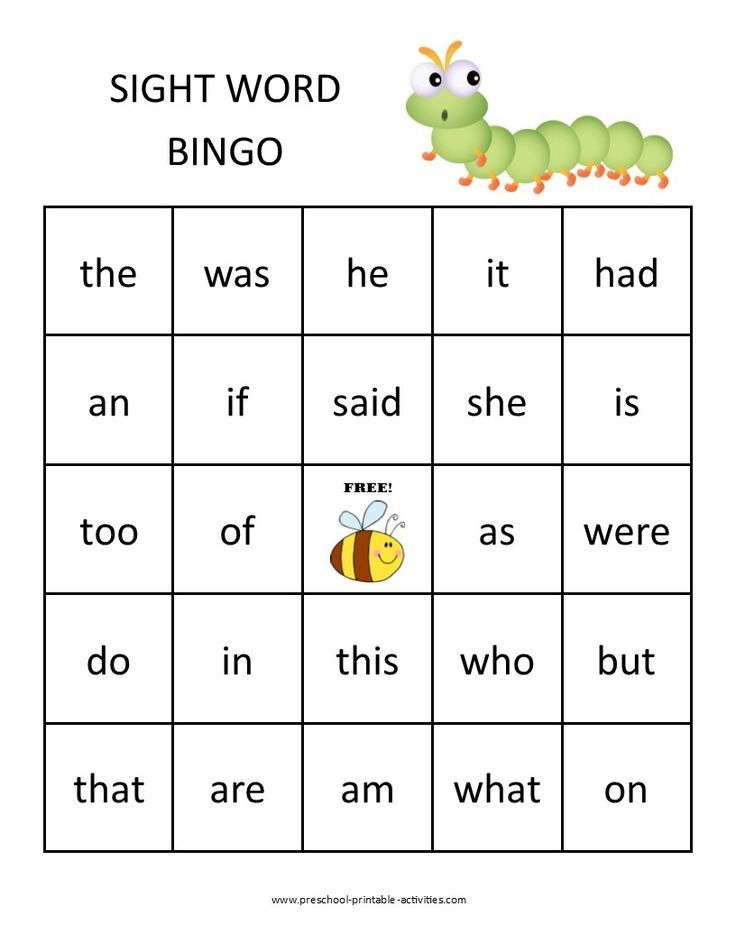 This game not only develops memory, but also teaches schoolchildren to highlight the main thing in the text, educational material, i.e. organize thinking and memory.
This game not only develops memory, but also teaches schoolchildren to highlight the main thing in the text, educational material, i.e. organize thinking and memory.
Songs game
The main goal of the game is to remember as many songs as possible. The first participant sings a verse of any song, the second must remember and sing the verse of the second song, but in which there must be at least one word from the previous song. The third recalls and sings a verse from another song that contains at least one word from the previous one, and so on. Anyone who cannot pick up a song within one minute is out of the game.
Motor memory.
The players are divided into two teams. The host asks the participants of the game to choose a representative from both teams and the jury. Team representatives dance for 15 seconds. Members of each team watch them. At the signal of the leader, the representatives of each team must repeat the movements of the opponent's dancer as accurately as possible.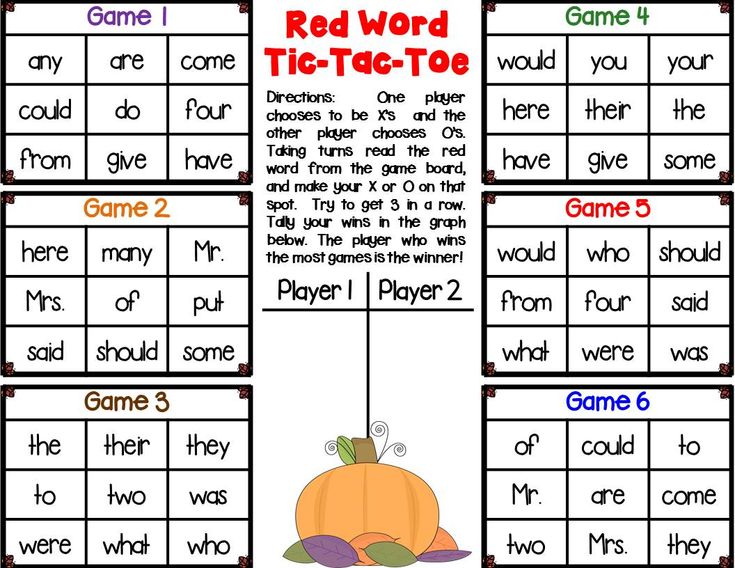 The jury evaluates motor memory, determines the winning team, and then the player with the best motor memory.
The jury evaluates motor memory, determines the winning team, and then the player with the best motor memory.
Tips for training memory
1. Fatigue and exhaustion are the enemies of memory. If you want to memorize the material given at home well, take a rest after the lessons, it is better in the fresh air.
2. For better memorization, you need positive emotions, you need a good mood. When preparing homework, try not to think about the bad. If you are irritated, agitated, then first calm down.
3. Try to get rid of laziness. Laziness is the worst enemy of memory. For better memorization, readiness for perception, interest is needed.
Entertaining tasks, games.
Subject: Noun.
- Choose as many two-letter nouns as possible. (Us, hell, silt, already, hedgehog, ace ...)
- Pick up as many three-letter nouns as possible. (Whale, cat, year, mouth, stake, ox, ruff…)
- Game for developing the amount of memorized material: "Add and remember".
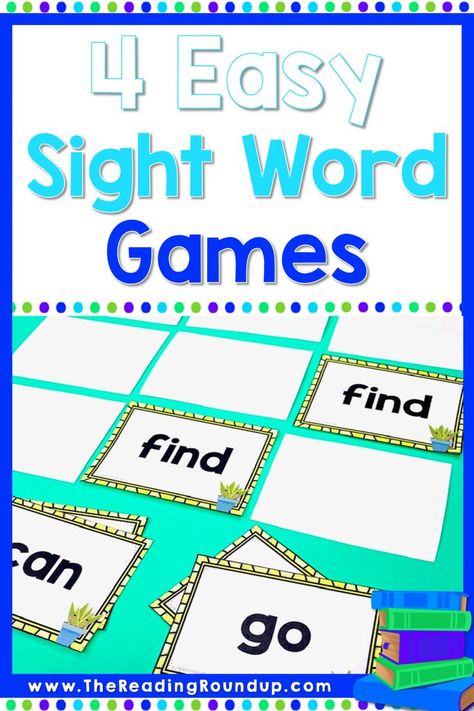
The first student calls any noun, let's say a car. the next repeats: car and adds a second noun, such as a bicycle. The third student remembers the previous two words, adds his own and says: car, bicycle, computer.
The game continues until someone makes a mistake.
The winner is the one who remembers the most words.
- Playing speed game: "12 answers to one letter" (for example, to the letter k).
They play in pairs or at the same time the whole class answers in writing. Half a minute is allotted for recording each answer.
ANSWERS
1) Male name. Konstantin
2) A female name. Claudia
3) The name of the fish
4) The name of the pet. Cow
5) The name of the wild animal. Boar
6) Name of the writer. Kuprin
7) Patronymic of a person. Kuzmich
8) The name of the village. Kiselevka
9) The name of the flower. Bell
10) Name of the dog.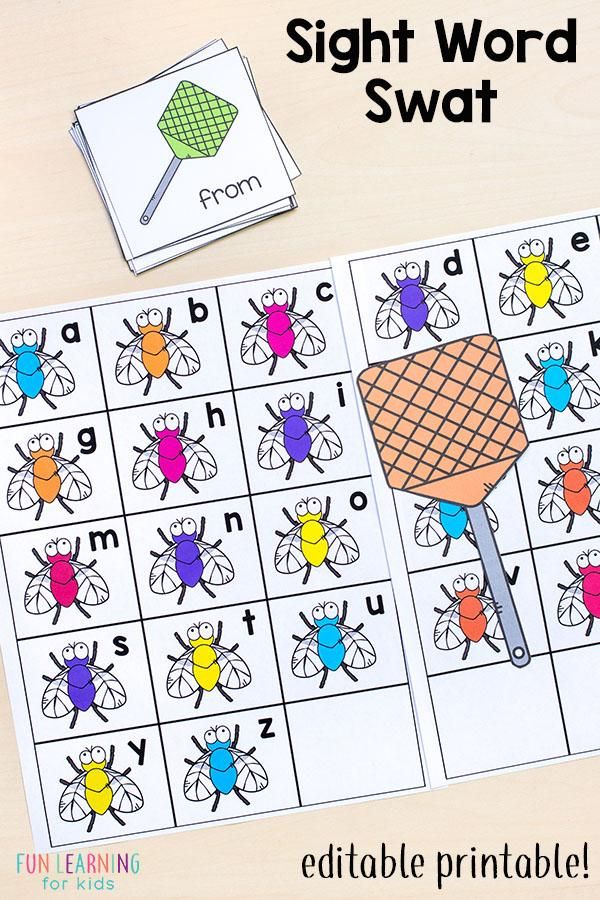 Kashtanka
Kashtanka
11) City name. Kyiv
12) The name of the educational thing. Pencil
- Write down the nouns that are associated with this subject (an illustration of any subject is posted: a room, a bear, a car, etc.).
Conditions: a). Write down nouns in the system;
b). You are allowed to use a spelling dictionary.
The winner is the one who writes down more nouns in a certain period of time. (For example, the following nouns are associated with a room: TV set, sofa, picture, etc.)
You can choose any recording system. For example, first list the main objects that make up the room: walls, ceiling, floor, door, window, etc. Then proceed to a detailed listing of items related to the wall, floor, etc.: wall - brick, cement, wallpaper, glue, plinth, rectangle, etc.; floor - parquet, varnish, carpet, etc. Next, you can describe the decor of the room, starting with large items and ending with small ones: a wardrobe, a bed, an armchair, a table, etc.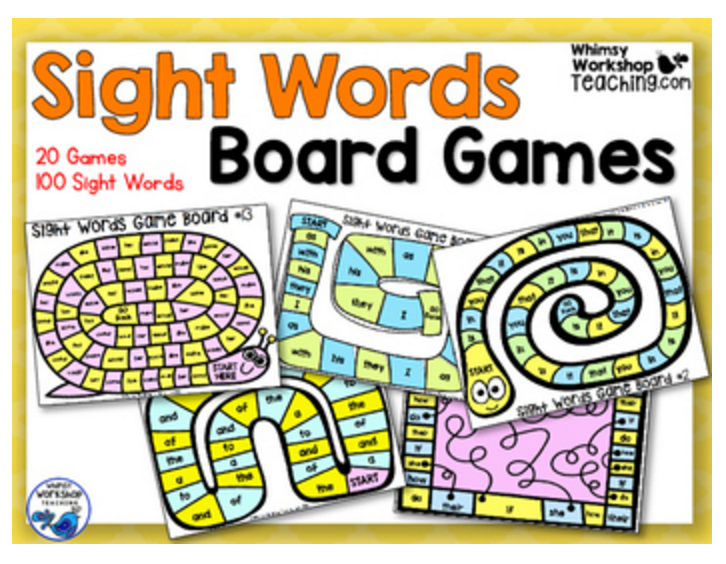
Subject. Adjective.
- Select as many additional features as possible.
Sample A good story (instructive, funny, interesting, informative).
Good person (…, …, …).
Good team (…, …, …).
Good day (…, …, …).
Good son (…, …, …).
Good dog (…, …, …).
Answers.
A good person (kind, sensitive, reliable, decent, sympathetic, faithful, obligatory, honest, truthful).
Good team (friendly, caring, attentive).
Good day (sunny, fine, glorious, wonderful, labor, wonderful, memorable).
A good son (attentive, caring, obedient, hardworking, educated, loving).
Good dog (loyal, intelligent, obedient, calm, friendly, clean).
- Choose a sufficient number of signs by which it would be possible to accurately guess the object.
For example: little mouse, gray, shy.;
wolf …, …, …;
Bear…,…,…;
Student ..., ... , ..., ....
, ..., ....
A n s u s s : grey, toothy, hungry wolf;
bear, brown, clumsy, clumsy;
diligent, polite, obedient student.
- Instead of dots, insert the appropriate signs into the puzzle:
(Small) ... animals,
(Grey) ... fur coats,
(Black) ... eyes,
(sharp) ... teeth.
Mice.
(Eskimo.)
(White) ... polka dots
on (green) ... stem. 9(lily of the valley)
(Forty)
- Competition game "How many signs can you find?"
An illustration of any object, such as an owl, is displayed. It is necessary to write down as many signs of this subject as possible.
Conditions: a) write in the system;
b) it is allowed to use a spelling dictionary.
- Game "Guess the object".
They play in pairs. Each player has a dial with an arrow. The dial is divided into 12 parts, and each part contains an adjective.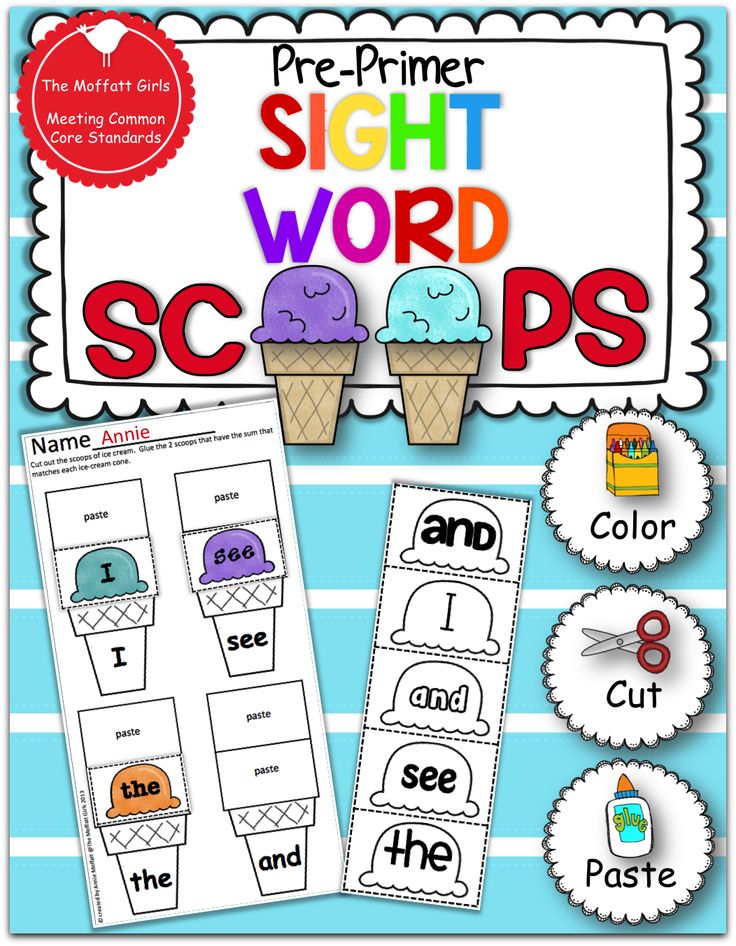 The content of the entry on the dial corresponds to one of the options.
The content of the entry on the dial corresponds to one of the options.
Option 1
Hot white
Memorial cheap
Forest large 9Ol0000003
Eaty edible
Deep tail
Players close their eyes and at random translate arrows. Randomly selected signs are a topic for guessing the subject. For example, on one of the dials - the word water, on the other - big. It is necessary to remember and write down as many objects as possible according to two criteria: "water" and "large". The nouns spider, root, worm, stem, flower, etc. are suitable here. it is allowed to change the gender and number of adjectives: big water rat; large water wheel; big water clock.
Each item correctly named is worth 1 point.
The results of the first round of the game are summed up. Then the arrows are rearranged - and the game continues.
Note. The whole class can participate in the game at the same time. Then the choice of adjective names is controlled by two students - only they translate the arrows. The teacher writes down the selected signs on the blackboard, and the competition begins.
The teacher writes down the selected signs on the blackboard, and the competition begins.
A certain period of time is allotted for the execution of the task. Then the notebooks are collected, and after checking, the winner is announced.
- Tasks, games, competitions that help to keep the material in the mind for a long time, and therefore to remember it for a long time.
- Game "Five words for one letter".
The teacher writes a word on the blackboard, one letter in which (spelling) is underlined. The children must come up with and write down 5 words that begin with this letter. The winner is the one who completes the work quickly and without spelling errors.
For example: distant rich diligent
pineapple eagle IVEL
ONE OPEL IVOLGA
APROCKOCOS OF NACE
watermelon Fire Iris
Arachis tin needle
- Competition "Who is better?"
The children are given a task to figure out how to remember for the rest of their lives the spelling in the words: rich, attentive, magical, east, potato, square, suit, mathematics, monkey, passenger, drawing, north.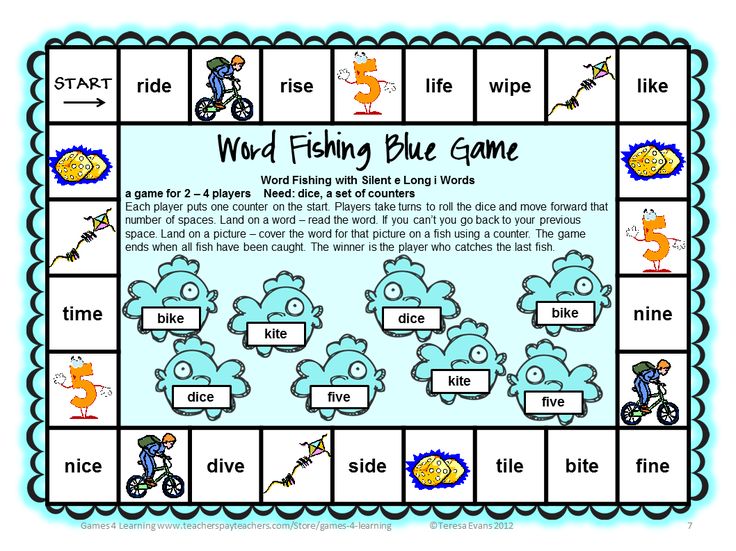
For example, rich - I write like God; or so: a rich man has a lot of coins, round, like the letter o.
(No more than two or three words are given in one lesson.)
- Game-competition "Who is more?".
Form adjectives from dictionary words:
Option 1 - with unstressed vowel o.
Option 2 - with unstressed vowel a.
Subject. Verb.
- Game "On duty letter". (ready to play is checked).
Write as many verbs as possible starting with the letter k (the letter is chosen at the discretion of the teacher).
- Choose as many verbs as possible that could be "friends" with the noun dog (or birch, etc.).
Conditions: a) write in the system;
b) it is allowed to use a spelling dictionary.
- Remember and write down the verbs alphabetically: one verb for each letter.
For example: turn red, turn white, hang, etc.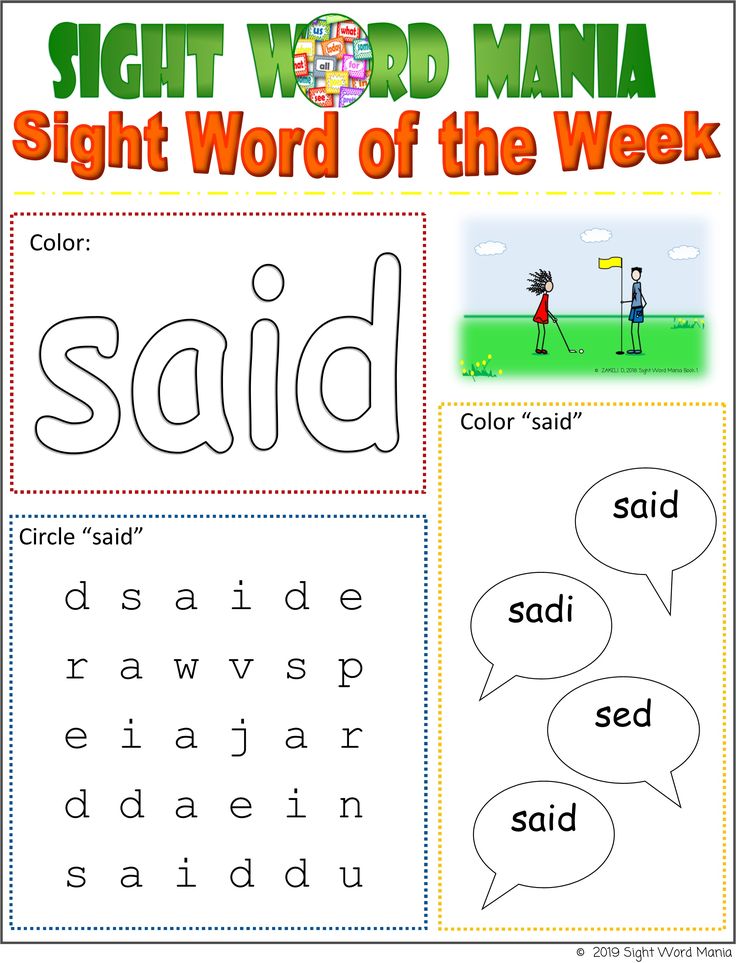
- Select and write down the rhyme for the verbs: play, lead, protect, read.
Answers:
Play - give away, suffer, sob, throw, scare, ...;
Lead - row, carry, carry, weave, ...;
Protect - guard, lie down, ...;
Read - write, scratch, dance, fly, torture, bathe, dig, ....
- Write down as many verbs as possible with the particle not.
Exemplary topics: "Tips for babies."
"Advice for first-graders".
"At the dinner table".
"Observe the rules of the road"
"So that there is no fire"
- Write down as many verbs as possible on this topic:
"Morning business".
"I'm going to school."
"At the lesson".
"How I do my homework".
"I'm walking."
"I help my mother."
"Before going to bed".
"What useful actions do I do in a day."
"What harmful actions do I know.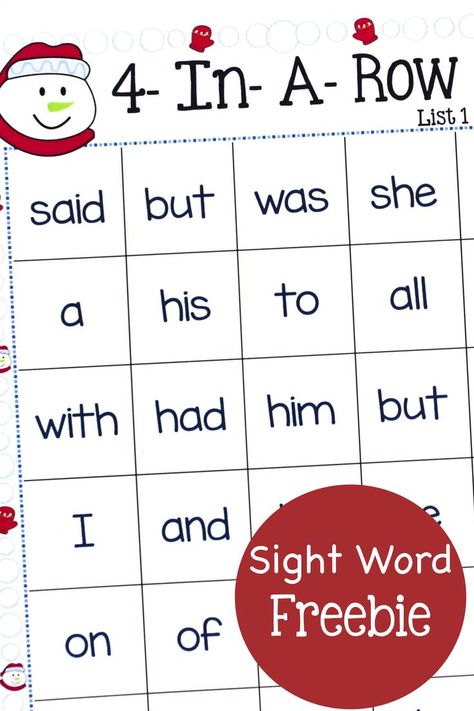 "
"
- "Help your memory" task.
Think of a better way to remember the underlined letter in a word.
For example, in the word peck "lives" the word lion.
Material for memory exercises
for movement.
Good Morning!
- The fingers of the right hand “awaken” the right eye from sleep.
- The same for the left hand.
- Pulling with the right, then with the left hand
- The right hand imitates brushing teeth: right - left - right.
- The left one makes three movements “with a comb” from the forehead to the back of the head: in the middle of the head, on the right, on the left.
“Flight of an autumn leaf”
Starting position: the right hand is at chest level, its palm is lowered so that the spread fingers resemble a maple leaf.
- “Leaf” sways on the branch three times: right-left-right.
- "Leaf" broke away from the branch, slid down and froze for a moment.
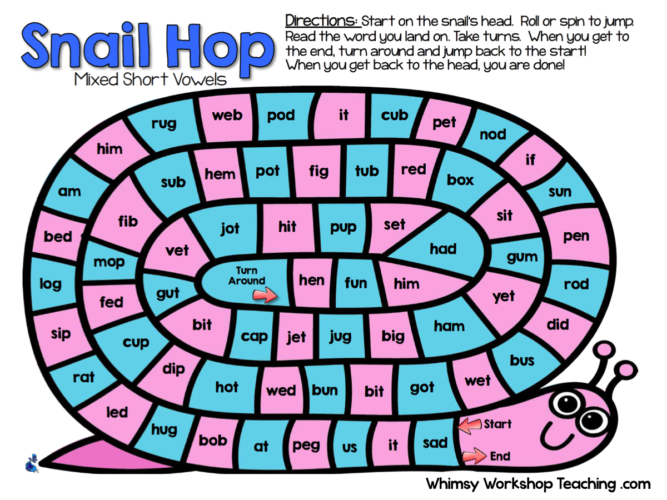
Learn more

